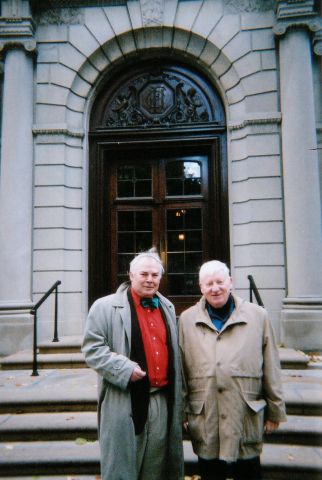Information (254)
Children categories
Thanking our Partners (14)
Australian Book Review is assisted by the Australian Government through Creative Australia, its principal arts investment and advisory body, and is also supported by the South Australian Government through Arts South Australia. We also acknowledge the generous support of our university partner, Monash University; and we are grateful for the support of the Copyright Agency Cultural Fund, Good Business Foundation (an initiative of Peter McMullin AM), the Sidney Myer Fund, Australian Communities Foundation, Sydney Community Foundation, AustLit, Readings, our travel partner Academy Travel, the City of Melbourne, and Arnold Bloch Leibler.
View items...Index for 2012: Nos 338–347
Reviews Index 2012
ALDRICH, Robert, Gay Life Stories, Thames & Hudson, 342/58, Brian McFarlane
ALEXANDER, Stephanie, A Cook’s Life, Lantern, 340/25, Gay Bilson
ALLEN, Emma, The Terrible Suitcase, Omnibus Books, 344/74, Stephanie Owen Reeder
AMIN, Manisha Jolie, Dancing to the Flute, Allen & Unwin, 344/49, Diana Carroll
ANDERSON, Jaynie (ed.), The Cambridge Companion to Australian Art, CUP, 338/28, Andrew Sayers
ANDERSON, Lauren et al. (eds), Hide Your Fires: 2012 UTS Writers’ Anthology, Figment Publishing, 344/76, Francesca Sasnaitis
APPLEBY, Rosalind, Women of Note: The Rise of Australian Women Composers, Fremantle Press, 339/41, Jillian Graham
ARMANNO, Venero, Black Mountain, UQP, 345/58, Jeffrey Poacher
ASH, Romy, Floundering, Text, 339/44, Sky Kirkham
ASHTON, Rosemary, Victorian Bloomsbury, Yale, 346/63, Margaret Harris
ATWOOD, Margaret, In Other Worlds: SF and the Human Imagination, Virago, 338/48, Melinda Harvey
AVERY, Kevin (ed.), Conversations with Clint: Paul Nelson’s Lost Interviews with Clint Eastwood 1979–1983, Continuum Books, 338/43, Jake Wilson
AVISHAI, Bernard, Promiscuous: Portnoy’s Complaint and Our Doomed Pursuit of Happiness, Yale, 347/68, Shannon Burns
BAIL, Murray, The Voyage, Text, 345/15, James Ley
BANYARD, Jan, Mystery at Riddle Gully, Fremantle Press, 342/62, Ruth Starke
BARCAN, Alan, From New Left to Factional Left: Fifty Years of Student Activism at Sydney University, Australian Scholarly Publishing, 347/63, Richard Broinowski
BARKLEY, Glenn and Lesley Harding (eds), Ken Whisson: As If, Heide Museum of Modern Art and Museum of Contemporary Art Australia, 343/51, Eileen Chanin
BARRY, Peter, We All Fall Down, Transit Lounge, 346/65, Denise O’Dea
BASE, Graeme, Little Elephants, Viking, 347/70, Joy Lawn
BEEVOR, Antony, The Second World War, Weidenfeld & Nicolson, 346/59, Robin Prior
BINET, Laurent, HHhH, Harvill Secker, 344/66, Anna Heyward
BISHOP, Janet, Cécile Debray, and Rebecca Rabinow (eds), The Steins Collect: Matisse, Picasso, and the Parisian Avant-Garde, San Francisco Museum of Modern Art/Yale, 342/32, Patrick McCaughey
BLAINEY, Geoffrey, A Short History of Christianity, Viking, 342/50, Philip Harvey
BLAND, Nick and Stephen Michael King, The Magnificent Tree, Scholastic, 344/74, Stephanie Owen Reeder
BOLTON, Ken, Four Poems, Little Esther Books, 345/68, Gig Ryan
BOLTON, Ken, Selected Poems 1975–2010, Shearsman Books, 345/68, Gig Ryan
BONGIORNO, Frank, The Sex Lives of Australians: A History, Black Inc., 344/68, Dennis Altman
BOYD, Brian, Stalking Nabokov: Selected Essays, Columbia University Press, 344/14, Paul Morgan
BOYD, Brian, Why Lyrics Last: Evolution, Cognition, and Shakespeare’s Sonnets, Harvard, 342/42, Chris Wallace-Crabbe
BOYNE, John, The Terrible Thing that Happened to Barnaby Brocket, Doubleday, 343/79, Laura Elvery
BRADFORD, Richard, Martin Amis: The Biography, Constable, 341/48, Jane Sullivan
BRENNAN, Michael, Autoethnographic, Giramondo, 346/23, Peter Kenneally
BRETT, Lily, Lola Bensky, Hamish Hamilton, 345/22, Francesca Sasnaitis
BROOKS, David, The Conversation, UQP, 346/28, Cassandra Atherton
BROWN, Honey, After the Darkness, Viking, 340/49, Alan Vaarwerk
BROWN, Jonathan, Great Wagner Conductors: A Listener’s Companion, Parrot Press, 342/30, Robert Gibson
BRUCE, Candice, The Longing, Random House, 340/43, Francesca Sasnaitis
BURKE, Janine, Nest: The Art of Birds, Allen & Unwin, 341/46, Gay Bilson
BURROWS, Deborah, A Stranger in My Street, Pan Macmillan, 342/59, Milly Main
BURTON, Pamela, The Waterlow Killings: A Portrait of a Family Tragedy, Victory Books, 347/29, Alison Broinowski
BUTTON, James, Speechless: A Year in My Father’s Business, MUP, 346/18, Joel Deane
CAHILL, Michelle, Vishvarūpa, 5 Islands Press, 340/57, Mark Tredinnick
CAMPISI, Dale (ed.), Island 129: Women, Island, 345/63, Ellena Savage
CANTWELL, John with Greg Bearup, Exit Wounds: One Australian’s War on Terror, MUP, 347/10, Nick Hordern
CAREY, Peter, The Chemistry of Tears, Hamish Hamilton, 338/25, Patrick Allington
CARO, Robert A., The Years of Lyndon Johnson: The Passage of Power, Bodley Head, 346/34, Peter Heerey
CARTER, M.A. (edited by Philip Salom), Keeping Carter, Puncher & Wattmann, 341/65, Cassandra Atherton
CARTER, Paul D., Eleven Seasons, Allen & Unwin, 342/25, Amy Baillieu
CAVANAUGH, Tony, Promise, Hachette Australia, 343/42, Dean Biron
CLEARY, Paul, Mine-Field: The Dark Side of Australia’s Resources Rush, Black Inc., 345/54, Gillian Terzis
CLEARY, Simon, Closer to Stone, UQP, 340/42, Dean Biron
COHN, Susan (ed.), Unexpected Pleasures: The Art and Design of Contemporary Jewellery, Rizzoli, 343/34, Christopher Menz
COLEMAN, Aidan, Asymmetry, Brandl & Schlesinger, 344/73, Mike Ladd
COLLINI, Stefan, What Are Universities For?, Penguin, 341/23, Glyn Davis
COLLINS, Courtney, The Burial, Allen & Unwin, 345/72, Gillian Dooley
CONRAD, Peter, Verdi and/or Wagner: Two Men, Two Worlds, Two Centuries, Thames & Hudson, 342/30, Robert Gibson
COOK, Pam, Nicole Kidman, Palgrave Macmillan/British Film Institute, 345/72, Francesca Sasnaitis
COOK, Richard M., Alfred Kazin: A Biography, Yale, 340/46, Don Anderson
COOK, Richard M. (ed.), Alfred Kazin’s Journals, Yale, 340/46, Don Anderson
COPPEL, Stephen, Out of Australia: Prints and Drawings from Sidney Nolan to Rover Thomas, British Museum, 343/18, Angus Trumble
CORNELL, Andrew (ed.), The Best Australian Business Writing 2012, NewSouth, 347/44, Gillian Terzis
CORRIS, Peter, Comeback, Allen & Unwin, 338/57, Dean Biron
COX, Paul, Tales from the Cancer Ward, Transit Lounge, 338/55, Felicity Plunkett
CRAIG, George et al. (eds), The Letters of Samuel Beckett, Volume II: 1941–1956, CUP, 341/29, Michael Morley
CRICHTON-BROWN, Nicola, Detroit and the Valley of Hillas Creek: A Social and Environmental History, Melbourne Books, 343/75, Susan Crennan
CROOME, Andrew, Midnight Empire, Allen & Unwin, 346/26, Jay Daniel Thompson
CROTHERS, Tanya (ed.), We Talked of Other Things: The Life and Letters of Arthur Wheen 1897–1971, Longueville Media, 339/54, Graeme Powell
D’ARCENS, Louise, Old Songs in the Timeless Land: Medievalism in Australian Literature 1840–1910, UWAP, 341/67, Gregory Kratzmann
DE BEAUVOIR, Simone (edited by Margaret A. Simons and Marybeth Timmermann), ‘The Useless Mouths’ and Other Literary Writings, University of Illinois Press, 339/56, Colin Nettelbeck
DE CRESPIGNY, Robin, The People Smuggler: The True Story of Ali Al Jenabi, the ‘Oskar Schindler of Asia’, Viking, 343/65, Paul Morgan
DEGENNARO, Sue, The Pros & Cons of Being a Frog, Scholastic, 344/74, Stephanie Owen Reeder
DE KRETSER, Michelle, Questions of Travel, Allen & Unwin, 345/18, Melinda Harvey
DE ZEGHER, Catherine and Gerald McMaster (eds), All Our Relations: 18th Biennale of Sydney 2012, Biennale of Sydney, 344/62, Felicity Fenner
DAPIN, Mark (ed.), The Penguin Book of Australian War Writing, Viking, 338/40, David Day
DAVIES, Bruce with Gary McKay, Vietnam: The Complete Story of the Australian War, Allen & Unwin, 347/66, Peter Edwards
DAVIES, Julian and Phil Day, Lost Art: Two Essays on Cultural Dysfunction, Finlay Lloyd Publishers, 345/42, Scott McCulloch
DAVIES, Norman, Vanished Kingdoms: The History of Half-Forgotten Europe, Allen Lane, 346/60, Norman Etherington
DAVISON, Graeme and Kate Murphy, University Unlimited: The Monash Story, Allen & Unwin, 342/14, Brenda Niall
DESSAIX, Robert, As I Was Saying: A Collection of Musings, Vintage, 339/50, Jane Goodall
DISNEY, Dan, and then when the, John Leonard Press, 342/55, Kate Middleton
DIXON, Robert (ed.), The Novels of Alex Miller: An Introduction, Allen & Unwin, 342/40, Jane Goodall
DOBSON, Rosemary, Collected, UQP, 343/26, Susan Sheridan
DODD, Andrew, JJ Clark: Architect of the Australian Renaissance, NewSouth, 346/53, Philip Goad
DOHERTY, Peter, Sentinel Chickens: What Birds Tell Us About Our Health and the World, MUP, 345/52, Peter Menkhorst
DONALDSON, Ian, Ben Jonson: A Life, OUP, 338/16, Lisa Gorton
DOUGLAS-FAIRHURST, Robert, Becoming Dickens: The Invention of a Novelist, Harvard, 339/16, Evelyn Juers
DOUST, Jon, To the Highlands, Fremantle Press, 345/62, Jay Daniel Thompson
DOVE, Rita (ed.), The Penguin Anthology of 20th Century American Poetry, Penguin, 339/18, Paul Kane
DOYLE, Arthur Conan (read by Robert Lindsay), The Narrative of John Smith, British Library Board, 339/64, Brian McFarlane
DREWE, Robert, Montebello: A Memoir, Hamish Hamilton, 346/26, Brian Matthews
EAGAR, Kirsty, Night Beach, Penguin, 343/78, Pam Macintyre
EARLS, Nick, Welcome to Normal, Vintage, 343/70, Jeffrey Poacher
EARLS, Nick and Terry Whidborne, Word Hunters: The Curious Dictionary, UQP, 346/68, Sophie Splatt
EDGAR, Stephen, The Red Sea: New and Selected Poems, Baskerville Publishers, 345/66, Geoffrey Lehmann
EDMOND, Martin, Dark Night: Walking with McCahon, Auckland University Press, 346/52, Shannon Burns
EDQUIST, Harriet, Michael O’Connell: The Lost Modernist, Melbourne Books, 343/32, Morag Fraser
EGGLETON, Tony, A Short Introduction to Climate Change, CUP, 346/31, Don Aitkin
EKINS, Ashley with Ian McNeill, Fighting to the Finish: The Australian Army and the Vietnam War 1968–1975, Allen & Unwin, 344/71, Greg Lockhart
ELLIOTT, Will, Nightfall, HarperCollins, 347/72, Grace Nye
ELSAESSER, Thomas, The Persistence of Hollywood, Routledge, 341/43, Adrian Danks
EMERY, Brook, Collusion, John Leonard Press, 347/49, Anthony Lynch
ESPESETH, Amy, Sufficient Grace, Scribe, 344/65, Francesca Sasnaitis
FARRELL, Michael, Open Sesame, Giramondo, 345/69, Peter Kenneally
FEATHERSTONE, Lisa, Let’s Talk About Sex: Histories of Sexuality in Australia from Federation to the Pill, Cambridge Scholars Publishing, 342/52, Shirleene Robinson
FERGUSON, Adele, Gina Rinehart: The Untold Story of the Richest Person in Australian History, Pan Macmillan, 346/20, Jan McGuinness
FINKEL, Elizabeth (ed.), The Best Australian Science Writing 2012, NewSouth, 347/43, Robyn Williams
FISH, Alan (edited by Philip Salom), The Keeper of Fish, Puncher & Wattmann, 341/65, Cassandra Atherton
FITCH, Toby, Rawshock, Puncher & Wattmann, 345/67, Peter Kenneally
FITZPATRICK, Peter, The Two Frank Thrings, Monash University Publishing, 345/10, Ian Britain
FLYNN, Chris, A Tiger in Eden, Text, 339/32, Adam Rivett
FORD, Andrew, Try Whistling This: Writings About Music, Black Inc., 344/59, Gillian Wills
FORD, Mark (ed.), London: A History in Verse, Harvard, 347/46, Geoffrey Lehmann
FORD, Richard, Canada, Bloomsbury, 343/45, James Ley
FORSHAW, Barry, British Crime Film: Subverting the Social Order, Palgrave Macmillan, 347/54, Michael Fleming
FORSTER, Deborah, The Meaning of Grace, Vintage, 341/28, Jay Daniel Thompson
FOSTER, David, Man of Letters: Dog Rock 3, Puncher & Wattmann, 347/19, Susan Lever
FREEMAN, John (ed.), Granta 117: Horror, Granta, 339/63, Mieke Chew
FRENCH, Philip, I Found It at the Movies: Reflections of a Cinephile, Carcanet Press, 338/41, Brian McFarlane
FULLER, John, Who is Ozymandias? And Other Puzzles in Poetry, Allen & Unwin, 339/57, Chris Wallace-Crabbe
GIGANTE, Denise, The Keats Brothers: The Life of John and George, Harvard, 340/48, William Christie
GILBEY, David (ed.), fourW twenty-two, fourWpress, 344/76, Jay Daniel Thompson
GLEESON, Libby, Red, Allen & Unwin, 342/62, Ruth Starke
GLEESON, Libby and Freya Blackwood, Look, A BOOK!, Little Hare, 339/66, Joy Lawn
GOAD, Philip and Julie Willis (eds), The Encyclopedia of Australian Architecture, CUP, 343/20, Gerard Vaughan
GOODFELLOW, Geoff, Grace Goodfellow and Randy Larcombe, Waltzing with Jack Dancer: A Slow Dance with Cancer, Wakefield Press, 338/55, Felicity Plunkett
GOTT, Ted (ed.), Napoleon: Revolution to Empire, National Gallery of Victoria, 343/22, Robert Aldrich
GOULD, Alan, The Seaglass Spiral, Finlay Lloyd Publishers, 347/21, Jane Sullivan
GRAHAM, Bob, A Bus Called Heaven, Walker Books, 339/66, Joy Lawn
GRANFIELD, Matt, HipsterMattic, Allen & Unwin, 338/57, Alex O’Brien
GRANT, Pat, Blue, Giramondo/Top Shelf, 340/45, Ronnie Scott
GRAY, Anne, Sydney Long: The Spirit of the Land, National Gallery of Victoria, 347/48, Steven Miller
GRAY, Robert, Cumulus: Collected Poems, John Leonard Press, 346/62, Martin Duwell
GREENWOOD, Kerry, Cooking the Books, Allen & Unwin, 339/44, Francesca Sasnaitis
GROOM, Linda, A Steady Hand: Governor Hunter & His First Fleet Sketchbook, NLA, 346/50, Alisa Bunbury
GROSSI, Guy, Recipes from My Mother’s Kitchen, Lantern, 341/53, Christopher Menz
HADFIELD, Andrew, Edmund Spenser: A Life, OUP, 346/55, Lisa Gorton
HAESE, Richard, Permanent Revolution: Mike Brown and the Australian Avant-Garde 1953–97, Miegunyah, 339/39, Peter Hill
HAIGH, Gideon, On Warne, Hamish Hamilton, 347/41, Brian Matthews
HAIGH, Gideon, The Office: A Hardworking History, Miegunyah, 343/63, Jane Goodall
HARPER, Graeme (ed.), Inside Creative Writing: Interviews with Contemporary Writers, Palgrave Macmillan, 340/66, Ruth Starke
HARRIS, Christine and Ann James, It’s a Miroocool!, Little Hare Books, 344/74, Stephanie Owen Reeder
HARROWER, Elizabeth, The Watch Tower, Text, 345/12, Kerryn Goldsworthy
HARTNETT, Sonya, The Children of the King, Viking, 342/62, Ruth Starke
HARTNETT, Sonya, Wolf Creek (Australian Screen Classics), Currency Press, 338/19, Adam Rivett
HASTINGS, Max, All Hell Let Loose: The World at War 1939–1945, HarperCollins, 338/21, Robin Prior
HAWKE, Rosanne, The Messenger Bird, UQP, 343/78, Pam Macintyre
HEATH, Sally (ed.), Meanjin, Vol. 70, No. 4, MUP, 338/23, William Heyward
HEAZLEWOOD, Justin, The Bedroom Philosopher Diaries, A Small Press, 343/43, Milly Main
HENRY, Kristin, All the Way Home, UWAP, 343/77, Peter Kenneally
HERD, Nick, Networking: Commercial Television in Australia, Currency House, 343/61, Philip Bell
HEWETT, Dorothy, Wild Card: An Autobiography 1923–1958, UWAP, 344/12, Bernadette Brennan
HIL, Richard, Whackademia: An Insider’s Account of the Troubled University, NewSouth, 344/70, Suzie Gibson
HILL, Barry, Naked Clay: Drawing from Lucian Freud, Shearsman Books, 343/29, Kate Middleton
HILL, David and Fifi Colston, The Red Poppy, Scholastic, 339/66, Joy Lawn
HOCKING, Jenny, Gough Whitlam: His Time: The Biography, Volume II, Miegunyah, 346/15, Neal Blewett
HOLLAND, Patrick, Riding the Trains in Japan: Travels in the Sacred and Supermodern East, Transit Lounge, 339/65, William Heyward
HOLLAND, Patrick, The Darkest Little Room, Transit Lounge, 347/72, Jay Daniel Thompson
HOOPER, Chloe, The Engagement, Hamish Hamilton, 345/21, Kate McFadyen
HORNE, Julia and Geoffrey Sherington, Sydney: The Making of a Public University, Miegunyah, 347/63, Richard Broinowski
HUGHES, John, The Remnants, UWAP, 343/42, Ed Wright
HUNT, Julie, The Coat, Allen & Unwin, 344/74, Stephanie Owen Reeder
JACKSON, Philip W., What is Education?, University of Chicago Press, 342/15, Simon Marginson
JACOBSON, Lisa, The Sunlit Zone, 5 Islands Press, 343/26, Peter Kenneally
JAMES, Clive, A Point of View, Picador, 345/26, Andy Lloyd James
JEFFREY, Belinda, One Long Thread, UQP, 342/63, Laura Elvery
JOHNSON, Susan, My Hundred Lovers, Allen & Unwin, 342/23, Wendy Were
JORDAN, Mary Ellen and Andrew Weldon, Lazy Daisy, Busy Lizzie, Allen & Unwin, 339/66, Joy Lawn
JORDAN, Toni, Nine Days, Text, 344/24, Donata Carrazza
JUDT, Tony with Timothy Snyder, Thinking the Twentieth Century, William Heinemann, 342/11, Neal Blewett
KARUNATILAKA, Shehan, Chinaman: The Legend of Pradeep Mathew, Vintage, 345/60, Ed Wright
KEANE, Michael, Views from the Balcony: A Biography of Catherine Duncan, Macmillan Art Publishing, 338/59, Desley Deacon
KEATING, P.J., After Words: The Post-Prime Ministerial Speeches, Allen & Unwin, 338/9, Neal Blewett
KEILSON, Hans, There Stands My House: A Memoir, Scribe, 340/65, William Heyward
KELEN, S.K., Island Earth: New and Selected Poems, Brandl & Schlesinger, 341/66, Anthony Lynch
KENEALLY, Tom, The Daughters of Mars, Vintage, 342/22, Phil Brown
KENNEDY, Cate, Like a House on Fire, Scribe, 346/29, Anthony Lynch
KESSLER-HARRIS, Alice, A Difficult Woman: The Challenging Life and Times of Lillian Hellman, Bloomsbury, 343/73, Desley Deacon
KING, Stephen Michael, A Bear and a Tree, Viking, 339/66, Joy Lawn
KNIGHT, Eric, Reframe: How to Solve the World’s Trickiest Problems, Black Inc., 344/62, Alex O’Brien
KNOX, Malcolm, Bradman’s War: How the 1948 Invincibles Turned the Cricket Pitch into a Battlefield, Viking, 347/42, Bernard Whimpress
KOCH, Christopher, Lost Voices, Fourth Estate, 347/15, Don Anderson
KRAMER, Leonie, Broomstick: Personal Reflections of Leonie Kramer, Australian Scholarly Publishing, 346/23, Brigitta Olubas
KRIEN, Anna, Us and Them: On the Importance of Animals (Quarterly Essay 45), Black Inc., 340/63, Alex O’Brien
KWAYMULLINA, Ambelin, The Interrogation of Ashala Wolf, Walker Books, 344/75, Bec Kavanagh
LAMEY, Andy, Frontier Justice: The Global Refugee Crisis and What to Do about It, UQP, 340/27, Peter Mares
LANAGAN, Margo, Sea Hearts, Allen & Unwin, 341/57, Maya Linden
LANGDON, Jo, Snowline, Whitmore Press, 344/76, Peter Kenneally
LANZMANN, Claude, The Patagonian Hare: A Memoir, Atlantic Books, 345/70, Colin Nettelbeck
LAUGESEN, Amanda, ‘Boredom is the Enemy’: The Intellectual and Imaginative Lives of Australian Soldiers, Ashgate Publishing, 345/61, Craig Wilcox
LAWRENCE, Anthony, The Welfare of My Enemy, Puncher & Wattmann, 340/56, Martin Duwell
LAWSON, Sylvia, Demanding the Impossible: Seven Essays on Resistance, MUP, 341/51, Judith Armstrong
LEA, Bronwyn (ed.), Australian Poetry Journal: Volume 2.1, Technology, Australian Poetry, 345/65, Rose Lucas
LEONARD, John (ed.), Young Poets: An Australian Anthology, John Leonard Press, 340/53, Maria Takolander
LEWIS, Darrell, A Wild History: Life and Death on the Victoria River Frontier, Monash University Publishing, 344/47, John Rickard
LEWIS, Steve and Chris Uhlmann, The Marmalade Files, Fourth Estate, 346/64, Ben Eltham
LEYS, Simon, The Hall of Uselessness: Collected Essays, Black Inc., 338/19, Nick Hordern
LILLEY, Kate, Ladylike, UWAP, 342/61, Rose Lucas
LINKLATER, Andrew, The Problem of Harm in World Politics: Theoretical Investigations, CUP, 342/47, N.A.J. Taylor
LOKUGÉ, Chandani, Softly, As I Leave You, Arcadia Publishing, 338/54, Gillian Dooley
LOVITT, Zane, The Midnight Promise, Text, 345/57, Sky Kirkham
LOWENSTEIN, Antony and Jeff Sparrow (eds), Left Turn: Political Essays for the New Left, MUP, 344/67, Ben Eltham
MACINNIS, Peter, Curious Minds: The Discoveries of Australian Naturalists, NLA, 347/61, Peter Menkhorst
MACLEOD, Doug, The Shiny Guys, Penguin, 343/78, Bec Kavanagh
MCCOOEY, David, Outside, Salt Publishing, 339/60, Philip Harvey
MCFARLANE, Jenny, Concerning the Spiritual: The Influence of the Theosophical Society on Australian Artists 1890–1934, Australian Scholarly Publishing, 343/60, Steven Miller
MCKENZIE, Janet with Irene Barberis and Christopher Heathcote, Contemporary Australian Drawing #1, Palgrave Macmillan, 343/38, Justin Clemens
MCKEW, Maxine, Tales from the Political Trenches, MUP, 347/14, Jane Goodall
MCKIMMIE, Chris, Alex and the Watermelon Boat, Allen & Unwin, 344/74, Stephanie Owen Reeder
MCKINLAY, Meg, Ten Tiny Things, Fremantle Press, 344/74, Stephanie Owen Reeder
MCKNIGHT, David, Rupert Murdoch: An Investigation of Political Power, Allen & Unwin, 339/12, Joel Deane
MCMASTER, Rhyll, Late Night Shopping, Brandl & Schlesinger, 341/64, Bronwyn Lea
MCNEVIN, Anne, Contesting Citizenship: Irregular Migrants and New Frontiers of the Political, Columbia University Press, 340/27, Peter Mares
MCPHEE, Hilary with Ann Standish (eds), Memoirs of a Young Bastard: The Diaries of Tim Burstall 1953 to December 1954, Miegunyah, 340/20, John Thompson
MCPHEE, Peter, Robespierre: A Revolutionary Life, Yale, 341/56, Philip Dwyer
MANN, Michael E., The Hockey Stick and the Climate Wars: Dispatches from the Front Lines, Columbia University Press, 343/30, David Karoly
MANTEL, Hilary, Bring Up the Bodies, Fourth Estate, 342/19, Peter Rose
MARR, David, Panic, Black Inc., 338/13, Dennis Altman
MARR, Shirley, Preloved, Black Dog Books, 343/78, Pam Macintyre
MARSHALL, Debi, The House of Hancock: The Rise and Rise of Gina Rinehart, William Heinemann, 346/20, Jan McGuinness
MARTIN, Sarah, Davis McCaughey: A Life, UNSW Press, 347/28, Chris Wallace-Crabbe
MATTHEWS, Amy T., End of the Night Girl, Wakefield Press, 343/46, Anna Heyward
MAWER, Granville Allen, Canberry Tales: An Informal History, Arcadia Publishing, 347/69, John Thompson
MAYNARD, John, The Aboriginal Soccer Tribe: A History of Aboriginal Involvement with the World Game, Magabala Books, 342/51, Bernard Whimpress
MEGALOGENIS, George, The Australian Moment: How We Were Made for These Times, Hamish Hamilton, 340/29, Matthew Lamb
MEIN SMITH, Philippa, A Concise History of New Zealand, CUP, 338/61, Rachel Buchanan
MENZ, Christopher (ed.), Visions Past and Present: Celebrating 40 Years, The Ian Potter Museum of Art, 343/58, Jane Clark
MIDALIA, Susan, An Unknown Sky and Other Stories, UWAP, 347/67, Rob Horne
MILLARD, Glenda and Patricia Mullins, Lightening Jack, Scholastic, 339/66, Joy Lawn
MILLER, Steven, Dogs in Australian Art: A New History in Antipodean Creativity, Wakefield Press, 343/40, Stella Gray
MILLS, Jane, Jedda, Currency Press, 345/47, Jake Wilson
MILLS, Jennifer, The Rest is Weight, UQP, 346/67, William Heyward
MIMMOCCHI, Denise, Australian Symbolism: The Art of Dreams, Art Gallery of New South Wales, 344/60, Jane Clark
MODJESKA, Drusilla, The Mountain, Vintage, 341/25, Gillian Dooley
MOLONEY, James, The Tower Mill, UQP, 347/62, Sky Kirkham
MOORE, Nicole, The Censor’s Library: Uncovering the Lost History of Australia’s Banned Books, UQP, 341/21, Geoffrey Cains
MORGAN, Christopher, Currawalli Street, Allen & Unwin, 338/42, Carol Middleton
MORRISON, Fiona (ed.), Selected Prose of Dorothy Hewett, UWAP, 338/47, Bruce Bennett
MORTON, Peter, Lusting for London: Australian Expatriate Writers at the Hub of Empire, 1870–1950, Palgrave Macmillan, 342/43, Lucy Sussex
MUKHERJEE, Siddhartha, The Emperor of All Maladies: A Biography of Cancer, Fourth Estate, 338/55, Felicity Plunkett
MURAKAMI, Haruki (trans. Jay Rubin and Phillip Gabriel), 1Q84, Harvill Secker, 339/30, Alison Broinowski
MURNANE, Gerald, A History of Books, Giramondo, 342/20, Adam Rivett
MURRAY, Les (ed.), The Quadrant Book of Poetry, Quadrant Books, 342/55, Anthony Lynch
MURRAY, Ruby J., Running Dogs, Scribe, 341/26, Christine Piper
NEVILLE, Richard, Mr JW Lewin: Painter and Naturalist, NewSouth, 343/56, John Thompson
NEWTON-JOHN, Pierz, Fault Lines, Spineless Wonders, 344/49, Milly Main
NIALL, Brenda, True North: The True Story of Mark and Elizabeth Durack, Text, 340/21, Susan Sheridan
NOUEIHED, Lin and Alex Warren, The Battle for the Arab Spring: Revolution, Counter-Revolution and the Making of a New Era, Yale, 344/45, Peter Rodgers
NOWRA, Louis, Into That Forest, Allen & Unwin, 347/71, Laura Elvery
O’REILLY, P.A., The Fine Colour of Rust, Blue Door, 340/67, Alice Robinson
OPPY, Graham and N.N. Trakakis (eds), The Antipodean Philosopher, Volume 2: Interviews with Australian and New Zealand Philosophers, Lexington Books, 347/65, Craig Taylor
ORD, Mandy, Sensitive Creatures, Allen & Unwin, 339/67, Ronnie Scott
ORR, Stephen, Dissonance: A Novel, Wakefield Press, 344/25, Anthony Lynch
PARGETER, Alison, Libya: The Rise and Fall of Qaddafi, Yale, 344/45, Peter Rodgers
PARKER, Danny and Matt Ottley, Tree: A Little Story about Big Things, Little Hare, 347/70, Joy Lawn
PARRETT, Favel, Past the Shallows, Hachette Australia, 343/68, Amy Baillieu
PARRY, Bronwyn, Dead Heat, Hachette Australia, 341/44, Joy Lawn
PARRY, Glyn, The Arch-Conjuror of England: John Dee, Yale, 342/54, Wilfrid Prest
PAYNTER, Jennifer, Mary Bennet, Viking, 342/59, Carol Middleton
PEEL, Mark and Christina Twomey, A History of Australia, Palgrave Macmillan, 340/15, Frank Bongiorno
PIERSE, Simon, Australian Art and Artists in London, 1950–1965: An Antipodean Summer, Ashgate Publishing, 343/35, Sarah Scott
PRAKASH, Uday, The Walls of Delhi, UWAP, 344/64, Mridula Chakraborty
PRESTON, Edwina, The Inheritance of Ivorie Hammer, UQP, 347/52, Gillian Dooley
PRIDEAUX, Sue, Strindberg: A Life, Yale, 347/26, Kári Gíslason
RASCAROLI, Laura and John David Rhodes (eds), Antonioni: Centenary Essays, Palgrave Macmillan/British Film Institute, 342/34, Hamish Ford
REED, Christopher, Art and Homosexuality: A History of Ideas, OUP, 338/31, Robert Aldrich
REES, Peter, Desert Boys: Australians at War from Beersheba to Tobruk and El Alamein, Allen & Unwin, 340/61, Craig Wilcox
RENDLE- SHORT, Francesca, Bite Your Tongue, Spinifex Press, 338/50, Donata Carrazza
RELPH, Andrew, Not Drowning, Reading, Fremantle Press, 339/44, Gillian Dooley
REYNOLDS, Henry, A History of Tasmania, CUP, 338/23, John Hirst
RICHELL, Hannah, Secrets of the Tides, Hachette Australia, 344/49, Angela E. Andrewes
RIDDLE, Tohby, Unforgotten, Allen & Unwin, 347/70, Joy Lawn
RIFFENBURGH, Beau, Aurora: Douglas Mawson and the Australasian Antarctic Expedition 1911–14, Erskine Press, 342/49, Alasdair McGregor
ROBB, Peter, Lives, Black Inc., 342/9, Owen Richardson
ROBERTSON, Fiona, The Perfect Present, Viking, 339/66, Joy Lawn
ROBERTSON, Rachel, Reaching One Thousand: A Story of Love, Motherhood and Autism, Black Inc., 339/59, Carmel Bird
ROE, Nicholas, John Keats: A New Life, Yale, 347/23, William Christie
ROGERS, Benedict, Burma: A Nation at the Crossroads, Rider Books, 345/27, Nick Hordern
ROLLO, Joe, Beautiful Ugly: The Architectural Photography of John Gollings, Thames & Hudson, 343/52, Isobel Crombie
ROSENTHAL, Mark (ed.), William Kentridge: Five Themes, Yale, 341/37, Lisa Gorton
ROSS, John (ed.), The Penguin Book of Australian Bush Writing, Viking, 339/43, Susan K. Martin
ROTHENBERG, David, Survival of the Beautiful: Art, Science, and Evolution, Bloomsbury Press, 339/62, Ian Gibbins
ROWE, Josephine, Tarcutta Wake, UQP, 346/67, William Heyward
ROWLING, J.K., The Casual Vacancy, Little, Brown, 347/18, James Ley
ROXBURGH, Angus, The Strongman: Vladimir Putin and the Struggle for Russia, I.B. Tauris, 340/50, Geoff Winestock
RYAN, Alan, The Making of Modern Liberalism, Princeton, 346/58, Glyn Davis
RYAN, Christian (ed.), Australia: Story of a Cricket Country, Hardie Grant Books, 341/61, Bernard Whimpress
RYAN, Lyndall, Tasmanian Aborigines: A History Since 1803, Allen & Unwin, 343/49, Greg Lehman
SALA, Michael, The Last Thread, Affirm Press, 338/51, Kate Holden
SANTICH, Barbara, Bold Palates: Australia’s Gastronomic Heritage, Wakefield Press, 344/58, Sally Burton
SCHWARTZ, Sanford (ed.), The Age of Movies: Selected Writings of Pauline Kael, The Library of America, 339/37, Philippa Hawker
SCOTT, Kate and Lorelei Vashti (eds), Luminous: Celebrating 50 Years of the Australian Ballet, The Australian Ballet, 342/28, Jordan Beth Vincent
SCOTT, Kim, Iris Woods and the Wirlomin Noongar Language and Stories Project, Mamang, UWAP, 338/63, Christine Nicholls
SCOTT, Kim, Lomas Roberts and the Wirlomin Noongar Language and Stories Project, Noongar Mambara Bakitj, UWAP, 338/63, Christine Nicholls
SCOURFIELD, Stephen, Unaccountable Hours: Three Novellas, UWAP, 340/44, Elena Gomez
SHARKEY, Michael, Another Fine Morning in Paradise, 5 Islands Press, 343/76, Paul Hetherington
SHARKEY, Michael, Apollo in George Street: The Life of David McKee Wright, Puncher & Wattmann, 345/51, Geoff Page
SIEVWRIGHT, Ashley, Walter, Clouds of Magellan, 347/72, Crusader Hillis
SILVEY, Craig, The Amber Amulet, Allen & Unwin, 346/68, Sophie Splatt
SIMMONS, Sylvie, I’m Your Man: The Life of Leonard Cohen, Jonathan Cape, 347/39, David McCooey
SIMONE, Patrizia with Caroline Pizzey, My Umbrian Kitchen, Lantern, 347/46, Christopher Menz
SMITH, Sydney, The Lost Woman, Text, 343/66, Carmel Bird
SMITH, Vivian, Here, There and Elsewhere, Giramondo, 342/60, Martin Duwell
SMITHERS, Annie, Annie’s Garden to Table: A Garden Diary Featuring 100 Seasonal Recipes, Lantern, 341/53, Christopher Menz
SPANIER, Sandra and Robert W. Trogdon (eds.), The Letters of Ernest Hemingway: 1907–1922, CUP, 338/34, James McNamara
SPITZ, Bob, Dearie: The Remarkable Life of Julia Child, Alfred A. Knopf, 347/55, Sally Burton
STARCK, Nigel, Proud Australian Boy: A Biography of Russell Braddon, Australian Scholarly Publishing, 338/58, John Ellison Davies
STEDMAN, M.L., The Light Between Oceans, Vintage, 340/67, Jeremy Fisher
STEELE, Peter, Braiding the Voices: Essays in Poetry, John Leonard Press, 345/23, Paul Kane
STEWART, Briony, The Red Wheelbarrow, UQP, 344/74, Stephanie Owen Reeder
ST JOHN MOORE, Felicity, Vassilieff and his Art, Macmillan Art Books, 347/52, Robin Wallace-Crabbe
STOCKINGS, Craig (ed.), Anzac’s Dirty Dozen: 12 Myths of Australian Military History, NewSouth, 341/58, Robin Prior
STOW, Randolph, The Land’s Meaning: New Selected Poems, Fremantle Press, 344/42, Dennis Haskell
SUTHERLAND, John, Lives of the Novelists: A History of Fiction in 287 Lives, Profile Books, 340/17, James Ley
SWINGLER, Susan, The House of Fiction: Leonard, Susan and Elizabeth Jolley, Fremantle Press, 341/18, Francesca Rendle-Short
SWORD, Helen, Stylish Academic Writing, Harvard University Press, 345/63, Colin Steele
TAYLOR, Tony, Fishing the River of Time, Text, 340/26, Carol Middleton
THOMAS, Daniel (ed.), Bea Maddock: Catalogue Raissoné Volume I 1951–1983, Queen Victoria Museum and Art Gallery, 345/44, Ann Stephen
THOMPSON, Craig, Habibi, Faber, 338/64, Oslo Davis
THOMSON, Richard, Frances Fowle, and Rodolphe Rapetti, Van Gogh to Kandinsky: Symbolist Landscape in Europe 1880–1910, Mercatorfonds, 344/60, Jane Clark
TIDEY, John, Class Act: A Life of Creighton Burns, Australian Scholarly Publishing, 341/20, Nick Hordern
TIFFANY, Carrie, Mateship with Birds, Picador, 338/27, Bronwyn Lea
TOMALIN, Claire, Dickens: A Life, Viking, 339/16, Evelyn Juers
TOUCHELL, Dianne, Creepy & Maud, Fremantle Press, 345/72, Maya Linden
TRANTER, John (ed.), The Best Australian Poems 2011, Black Inc., 338/38, Kate Middleton
TRANTER, Kirsten, A Common Loss, Fourth Estate, 338/26, Ruth Starke
TRAVERS, Richard, The Tennis Courts of Lyon: Les Jeux de Paume de Lyon, Oryx Publishing, 341/63, Colin Nettelbeck
TULBA, Majok, Beneath the Darkening Sky, Hamish Hamilton, 344/26, Alison Broinowski
TWOHIG, Peter, The Cartographer, Fourth Estate, 340/67, Lucas Smith
ÜLGEZER, Alice Melike, The Memory of Salt, Giramondo, 345/56, Claudia Hyles
USHER, Rod, Poor Man’s Wealth, Fourth Estate, 338/52, Phil Brown
VAN KLINKEN, Helene, Making Them Indonesians: Child Transfers Out of East Timor, Monash University Publishing, 340/64, Jill Jolliffe
WAITE MORGAN, James, The Premier and the Pastoralist: William Morgan and Peter Waite, Wakefield Press, 338/60, Bernard Whimpress
WAKEFIELD, Vikki, Friday Brown, Text, 344/74, Sophie Splatt
WALKER, Anna, Peggy, Scholastic, 347/70, Joy Lawn
WALSH, Jennifer, The Tunnels of Tarcoola, Allen & Unwin, 342/62, Ruth Starke
WARK, McKenzie, The Beach Beneath the Street: The Everyday Life and Glorious Times of the Situationist International, Verso, 343/71, Ben Juers
WATERS, Christopher, Australia and Appeasement: Imperial Foreign Policy and the Origins of World War II, I.B. Tauris, 339/61, Stuart Macintyre
WATSON, Tom and Martin Hickman, Dial M for Murdoch: News Corporation and the Corruption of Britain, Allen Lane, 343/11, Anne Chisholm
WEINBERGER, Eliot, Wildlife, Giramondo, 342/57, William Heyward
WELLS, Pera (ed.), Ormond Papers Volume XXVIII, 2011, Ormond College, 341/22, Cassandra Atherton
WHITE, Anthony, Lucio Fontana: Between Utopia and Kitsch, MIT Press, 343/54, Peter Hill
WHITE, Patrick, The Hanging Garden, Vintage, 340/12, Peter Conrad
WHITE, Hugh, The China Choice: Why America Should Share Power, Black Inc., 346/32, Nick Bisley
WILD, Margaret, Tanglewood, Omnibus Books, 344/74, Stephanie Owen Reeder
WILLAN, Anne, Mark Cherniavsky, and Kyri Claflin, The Cookbook Library: Four Centuries of the Cooks, Writers, and Recipes that Made the Modern Cookbook, University of California Press, 345/50, Christopher Menz
WILLIAMS, Susan, Who Killed Hammarskjöld?: The UN, The Cold War and White Supremacy in Africa, Columbia University Press, 342/46, Roland Burke
WOOLFE, Sue, The Oldest Song in the World, Fourth Estate, 343/47, Jane Sullivan
WOOLLACOTT, Angela, Race and the Modern Exotic: Three ‘Australian’ Women on Global Display, Monash University Publishing, 340/59, John Rickard
WRIGHT, Fiona, Knuckled, Giramondo, 338/62, Rose Lucas
YULE, Peter, William Lawrence Baillieu: Founder of Australia’s Greatest Business Empire, Hardie Grant Books, 341/60, John Arnold
Features Index 2012
ABR ELIZABETH JOLLEY SHORT STORY PRIZE
COX, Jack, ‘Gorgeous Perambulator’, 344/51
ELLIOT, Ngiare, ‘Tended by Foxes’, 344/28
HURLEY, Sue, ‘Patterns in Nature’, 344/17
BOOKS OF THE YEAR
ALTMAN, Dennis, 347/31
ANDERSON, Don, 347/31
BEVERIDGE, Judith, 347/31
BIRCH, Tony, 347/31
GOLDSMITH, Andrea, 347/31
GOLDSWORTHY, Kerryn, 347/32
GORTON, Lisa, 347/32
KANE, Paul, 347/32
KINSELLA, John, 347/34
LEHMANN, Geoffrey, 347/34
LEY, James, 347/34
MCCAUGHEY, Patrick, 347/35
MCCOOEY, David, 347/35
MCFARLANE, Brian, 347/35
MILLER, Alex, 347/36
NIALL, Brenda, 347/36
STOTHARD, Peter, 347/36
SULLIVAN, Jane, 347/37
TRANTER, John, 347/37
WALLACE-CRABBE, Chris, 347/37
BOOKS OF THE YEAR: CHILDREN AND YOUNG ADULTS
KAVANAGH, Bec, 347/38
LAWN, Joy, 347/38
MACINTYRE, Pam, 347/38
OWEN REEDER, Stephanie, 347/38
SHUTTLEWORTH, Mike, 347/38
STARKE, Ruth, 347/38
CALIBRE PRIZE
RUBINSTEIN, Matt, ‘Body and Soul: Copyright Law and Enforcement in the Age of the Electronic Book’, 344/33
CARTOONS
Juers, Ben. 343/31, 343/57, 344/15, 344/48, 345/55, 346/13
COMMENTARY
ALLINGTON, Patrick, ‘All Bets are Off’, 342/18
CARTER, David, ‘Patrick White to the Rescue’, 347/22
COLLIS, David, ‘Who’s Afraid of the “E” Word?: Building Equity Among Australian Schools’, 346/9
CRAVEN, Peter, ‘A Hell of a Calling Card: Patrick White’s Jackeroo Epic is Finally Reissued’, 344/9
DESSAIX, Robert, ‘Pushing Against the Dark: Writing about the Hidden Self’, 340/32
FRASER, Morag, ‘If It’s Broke, Don’t Fix It!: Fear and Loathing in American Politics’, 338/14
GORTON, Lisa, ‘Shadow Vision: The Protean World of William Kentridge’, 341/37
GUEST, Stephanie, ‘Oz Lit in the Moot Court Room: Finding Australian Literature at the University of Melbourne’, 338/36
HARTNETT, Sonya, ‘“Dark Waves of Feeling”: Brotherly Themes in Martin Boyd’s A Difficult Young Man’, 339/33
HYLES, Claudia, ‘A Big Tamasha: Free Speech and Sectarian Tensions at the Jaipur Festival’, 339/9
KILNER, Kerry, ‘AustLit Coming Your Way’, 346/57
LINDSAY, Jennifer, ‘Goenawan Mohamad’, 345/29
MCCAUGHEY, Patrick, ‘Worldly Riches at the Barnes: From Musty Merion to a New Home in Philadelphia’, 343/16
MARR, David, ‘“So Much of Our Life in It”: Arrogant Adelaide and the Theatre of Patrick White’, 341/12
NETTELBECK, Colin, ‘Now They’ve Gone’, 346/36
FILM
FUHRMANN, Andrew, Wild Surmise, 347/50
HAWKER, Philippa, Cosmopolis, 344/57
HAWKER, Philippa, Trishna, 342/37
MCFARLANE, Brian, The Deep Blue Sea, 341/45
MCFARLANE, Brian, Wuthering Heights, 345/49
MORLEY, Michael, Coriolanus, 340/52
WILSON, Jake, Carnage, 339/36
LANGUAGE
OGILVIE, Sarah, ‘“A New Garment Throughout”: The Future of Dictionaries in the Digital Age’, 338/44
OGILVIE, Sarah, ‘Citizen Lexicography: Creating a “World Zoo” in Canberra’, 339/52
OGILVIE, Sarah, ‘Landmines in Lexicography’, 341/32
OGILVIE, Sarah, ‘Parasitic Dictionaries and Spam Books’, 340/58
OGILVIE, Sarah, ‘Unsung Hero of Australian Lexicography’, 342/38
ONLINE EDITION EXTRAS
FITZGERALD, ‘A Body of Water’, 9 August 2012
OPEN PAGE
BIRCH, Tony, 341/68
CONRAD, Peter, 339/68
MEARS, Gillian, 343/80
NIALL, Brenda, 340/68
TRANTER, John, 342/64
PETER PORTER POETRY PRIZE: THE SHORTLISTED POEMS
ELVEY, Anne, ‘Bayside Suburban’, 339/24
FARRELL, Michael, ‘Beautiful Mother’, 339/25
FITCH, Toby, ‘Oscillations’, 339/28
ROBINSON, Gareth, ‘Provenance’, 339/23
WELDON, Annamaria, ‘After Devotion’, 339/26
POEMS
BEVERIDGE, Judith, ‘The Blind Soothsayer’, 342/35
EDGAR, Stephen, ‘Grand Canyon’, 343/59
FARRELL, Michael, ‘The Grandfather’, 344/44
GORTON, Lisa, ‘Night Guard, The Futures Museum: after the ACMI Star Voyager Exhibition’, 340/41
KANE, Paul, ‘Co. Kerry’, 344/56
KINSELLA, John, ‘Brother’, 347/64
KINSELLA, John, ‘Emily Poems’, 341/36
LADD, Mike, ‘Tide: My Father’s Dementia’, 346/51
MAIDEN, Jennifer, ‘Deep River’, 338/30
MAIDEN, Jennifer, ‘Diary Poem: Uses of Liquid Nitrogen’, 345/59
MIDDLETON, Kate, ‘After Reading Henry James’s The Awkward Age’ 339/53
MIDDLETON, Kate, ‘Balcony 2: after Brett Whiteley’, 345/71
MIDDLETON, Kate, ‘Shearing the Rams’, 343/55
ROBINSON, Gareth, ‘Convocation’, 346/66
ROSE, Peter, ‘Dark, Not Day’, 345/53
ROSE, Peter, ‘Grade’, 338/39
STEELE, Peter, ‘Maze’, 342/45
TAKOLANDER, Maria, ‘Golden Sigi: An Advertisement’, 342/39
TAYLOR, Andrew, ‘Lament for the Makars’, 343/44
WALLACE-CRABBE, Chris, ‘One House’, 341/33
STORIES
BRYSON, John, ‘Kindly Death’, 347/57
TAKOLANDER, Maria, ‘Three Sisters’, 339/45
TELEVISION
HARKINS-CROSS, Rebecca, Redfern Now, 347/51
THEATRE
FUHRMANN, Andrew, On the Misconception of Oedipus, 345/46
FUHRMANN, Andrew, The Histrionic, 341/40
RICKARD, John, Summer of the Seventeenth Doll, 339/21
TRIBUTE
GOODALL, Jane, ‘Remembering Robert Hughes (1938–2012)’, 344/23
Opera Australia's Melbourne season
Opera Australia returns to Melbourne for a short season of three operas – one German, two Italian, all notable for their gory finales.
The season opened on 14 November with Moffatt Oxenbould’s production of Puccini’s Madama Butterfly, which has been entertaining us since 1998. Done well, Puccini’s ‘orientalist’ masterwork is riveting. The orchestration alone is worth the price of the ticket. Done badly, it can be interminable. The première – at La Scala, in 1904 – was a famous fiasco, a rare failure for the wizard of Italian opera.
Happily, this was an outstanding performance, one that got better and better all night, culminating in scenes of great drama and pathos. Conductor Giovanni Reggioli drew sure, subtle sounds from Orchestra Victoria. Oxenbould’s stately but dramatic conception holds up well. The courtly semaphore-like Japanese gestures are ubiquitous at first, but this settles down, allowing us to concentrate on the many dramas of fifteen-year-old Cio-Cio-San, perhaps the composer’s most poignant creation, along with Liù in Turandot. Barry Ryan, our Sharpless, the US Consul who must do Pinkerton’s dirty work, is outstanding. Young local James Egglestone plays the American cad. It is a light, high, accurate voice, and he hits all the notes, possibly waning slightly in the arduous love duet, but returning to the stage in outstanding voice an hour later (or should we say three years later?), when Pinkerton, accompanied by the American wife he always craved, acknowledges his many imperfections in the great trio and in his doleful aria ‘Addio, fiorito asil’.
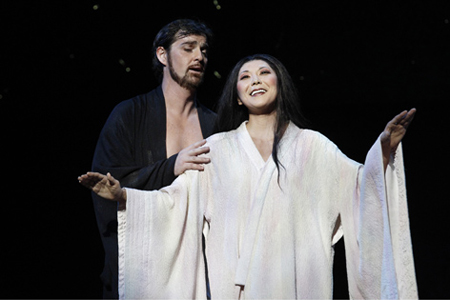 James Egglestone and Hiromi Omura in Madama Butterfly
James Egglestone and Hiromi Omura in Madama Butterfly
(photograph by Jeff Busby)
Sian Pendry, as Butterfly’s constant servant Suzuki, makes much of this noble rôle, and acts affectingly. But this is Hiromi Omura’s night, and this must be one of the finest Butterflys we have seen in years. Quite an actress, she remains in character all night, negotiating with ease the heroine’s marked transformation in outlook and temperament, from clueless virgin to undeceived suicide. The fantasy scene that opens Act Three could easily come unstuck in lesser hands, but here Omura is at her most actorly and compelling. 'Un bel di' could hardly be sung better. It is not a huge voice, but Omura copes with Puccini’s surges. Only the moving farewell to her infant son (a remarkably well-behaved little actor) is sung light-voiced, but it is no less affecting for that. Really, it is an awesome assumption of a truly great and truly difficult rôle.
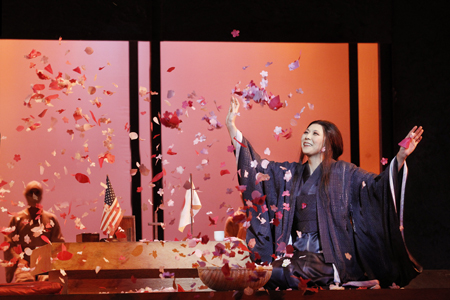 Hiromi Omura as Cio-Cio-San in Madama Butterfly (photograph by Jeff Busby)
Hiromi Omura as Cio-Cio-San in Madama Butterfly (photograph by Jeff Busby)
Nothing, it seems, happens in Scotland except cloudage and mariticide. Opera Australia’s new production of Lucia di Lammermoor (first presented in Sydney a few weeks ago) is remarkably sombre. A series of huge panels, covered in dark clouds, rise, fall, and tilt, providing a kind of bleak architecture for this latest rendition of Donizetti’s most famous opera.
John Doyle’s direction is sober, static, subdued. The sizeable chorus, deployed by Doyle, behaves like a frosty Presbyterian army. They enter in rows, interweave methodically, handle props as if their moral reputations depend upon it, and largely eschew expression. The wedding celebrations at Ravenswood Castle are quite joyless, despite the rousing music. D’immenso giubilo, indeed! When Lucia, having murdered her unwanted spouse, enlivens the occasion with her sanguinary fancies, the chorus remains rigid, emotionless, barely responding to Donizetti’s flitting freak. Still, the chorus sings forcefully and impressively throughout.
The vast stage is radically bare. This would suit Wagner, but I’m not sure about Donizetti’s busy, peopled opera. When two chairs are (theatrically) introduced in the third scene of Act One, it feels more portentous than the Second Coming. Later there is a long nuptial table on which the hysterical Lucia relives her gory consummation.
Lucia, of course, always dominates this opera, notwithstanding the excellence of Donizetti’s writing for male voices in this his forty-fifth opera (first performed in Naples in 1835). Famous as the long and elaborate mad scene is, Lucia has some superlative music in her earlier scenes, notably ‘Regnava nel silenzio’ and the jubilant cabaletta ‘Quando, rapita in estasi’ in the first scene, and a small, exquisite cavatina during her demoralised scene with Raimondo.
Emma Matthews as Lucia – girlish, sanguine, wide-eyed, a victim who smiles too much for her own good – is (understandably) cautious at first, and the high notes feel a little effortful, though always accurate. For the first act it is a winsome performance, not terribly original.
The mad scene is quite different. Here Matthews comes alive – comes alive to die. There is nothing glamorous about opera these days. Twitching and mad-eyed, the bare-footed Lucia shuffles on stage, her plain white nightgown covered in blood (with the usual modish menstrual additions). Here the orchestra plays every bit as well as it did during Butterfly – which augurs well for next year’s Ring Cycle. The addition of a glass harmonica-like electronic keyboard (the harmonica was Donizetti’s original choice, but Benjamin Franklin’s invention) during the mad scene is inspired. It is such a weird, luring, other-wordly sound – perfect for this long, abject, infinitely melodious scene. Matthews – eschewing grandiose effects and shuffling round the stage like a demented murderess in Prime Suspect – takes it slowly and imaginatively. She responds brilliantly to the companionable flute. Rightly, she brings down the house with the cabaletta ‘Spargi d’amaro pianto’.
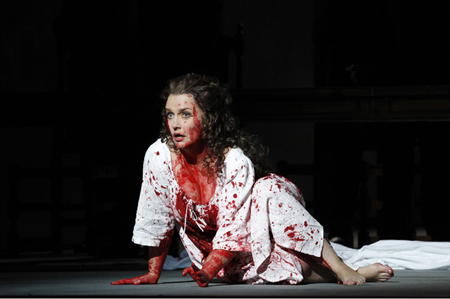 Emma Matthews in Lucia di Lammermoor (photograph by Jeff Busby)
Emma Matthews in Lucia di Lammermoor (photograph by Jeff Busby)
The men are equally fine. The expressive-faced Giorgio Caoduro (Lucia’s venal brother Enrico) doesn’t waste any time and kicks off the night with a spirited aria. Aldo Di Toro, as Lucia’s hapless lover, Edgardo, is a conventional actor, but he sings his difficult music with great feeling, assurance and brio. If Opera Australia is ever going to give us another I Puritani, they need look no further than Matthews and Di Toro.
For some reason the director has chosen cut the Wolf’s Crag scene – a regrettable choice, since the music in this tempestuous contest between Enrico and Edgardo is lively and the available baritone and tenor would have savoured it. Why shorten an entertaining night at the theatre?
The youthful David Parkin, as Lucia’s chaplain Raimondo, brought impressive sympathy and accuracy to the rôle of Raimondo, Lucia’s often aghast chaplain.
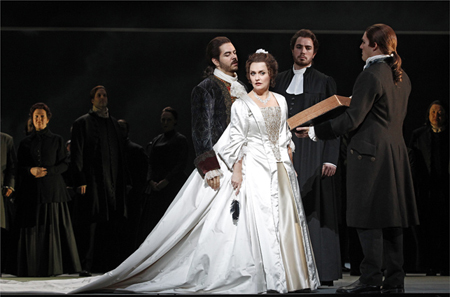 (photograph by Jeff Busby)
(photograph by Jeff Busby)
In one of the many paradoxes of bel canto opera, Lucia’s mad scene doesn’t close the opera. It is Edgardo, on being told of Lucia’s mad descent, who ends it with two arias, during the second of which he manages to stab himself much more neatly than Lucy of Lammermoor could manage. As the curtain descended – or rather, as the big cloudy panels folded on the latest victim – our boisterous conductor, Guillaume Tourniare, lost control of his baton, which went sailing over the pit – a fitting flourish.
Unfortunately, New York and the Met call and I will miss Cheryl Barker (who sang so beautifully in the Sydney production of Korngold’s Die Tote Stadt in July) in Strauss’s coruscating Salome, which opens on 1 December.
Opera Australia is performing in the State Theatre at the Arts Centre Melbourne. Madama Butterfly runs until 14 December 2012 and Lucia di Lammermoor until 15 December 2012. Salome opens on 1 December and runs until 15 December 2012.
Past winners of the ABR Elizabeth Jolley Short Story Prize
ABR subscribers can read all previous prize-winning and shortlisted stories to the Jolley Prize. If you aren't a subscriber, digital subscriptions begin at only $10 per month. Click here to become an ABR subscriber.
2024
Jill Van Epps: ‘Pornwald’
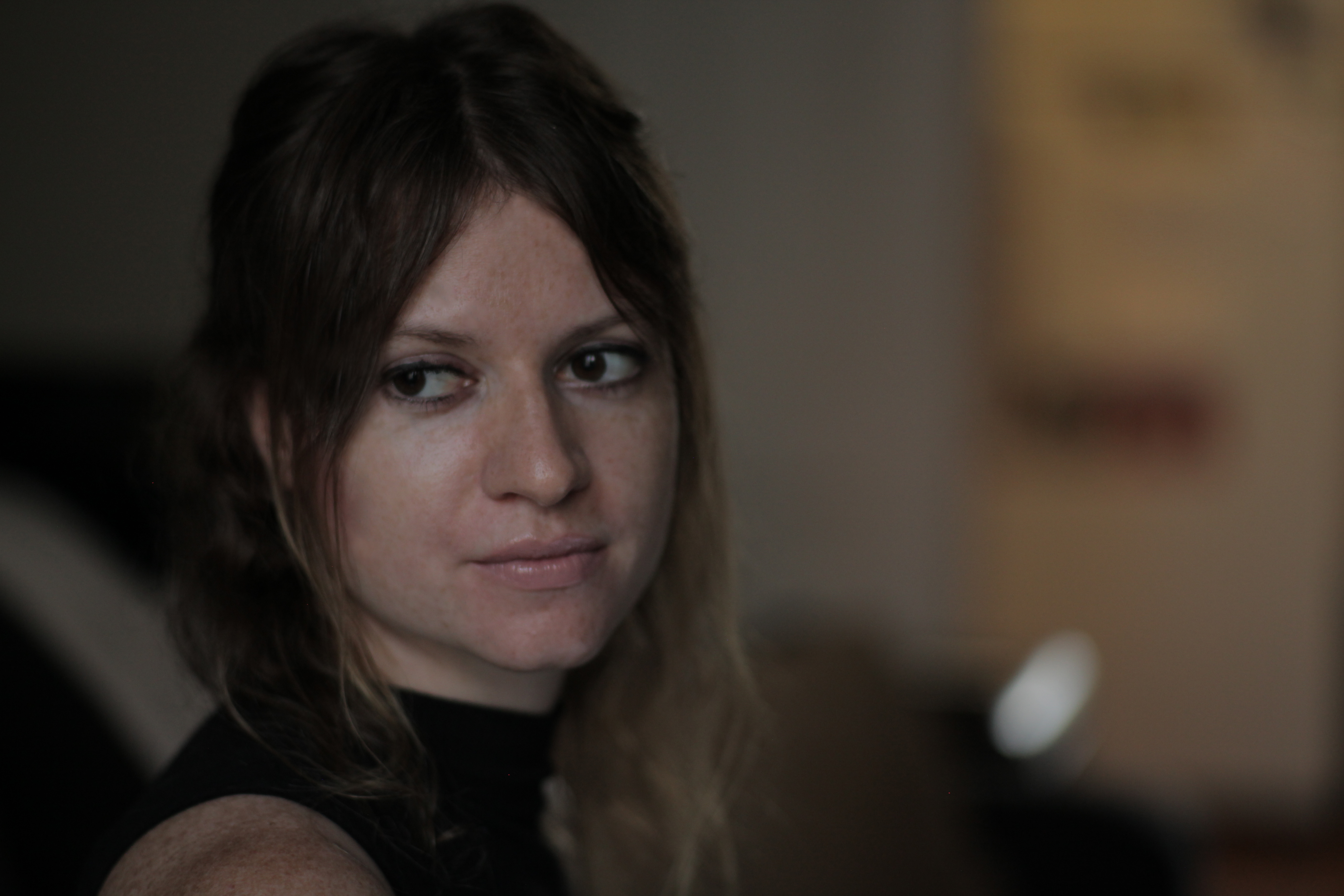 Jill Van Epps from New York was the winner of the 2024 ABR Elizabeth Jolley Short Story Prize for her story ‘Pornwald’. Judges Patrick Flanery, Melinda Harvey and Susan Midalia chose Van Epps’s story ‘Pornwald’ from an international field of about 1,310 stories, 413 of which were from overseas. Perth-based writer Kerry Greer was placed second for her story ‘First Snow’; and Shelley Stenhouse, another New Yorker, was placed third for ‘M.’. All three shortlisted stories were published in the August 2024 issue.
Jill Van Epps from New York was the winner of the 2024 ABR Elizabeth Jolley Short Story Prize for her story ‘Pornwald’. Judges Patrick Flanery, Melinda Harvey and Susan Midalia chose Van Epps’s story ‘Pornwald’ from an international field of about 1,310 stories, 413 of which were from overseas. Perth-based writer Kerry Greer was placed second for her story ‘First Snow’; and Shelley Stenhouse, another New Yorker, was placed third for ‘M.’. All three shortlisted stories were published in the August 2024 issue.
2023
Rowan Heath: ‘The Mannequin’
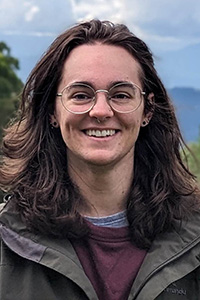 Rowan Heath was the winner of the 2023 ABR Elizabeth Jolley Short Story Prize for their story ‘The Mannequin’. They received $6,000. This year’s prize received 1,200 entries from thirty-eight different countries. Uzma Aslam Khan placed second and receives $4,000 for her story ‘Our Own Fantastic’ , and Winter Bel placed third and received $2,500 for her story ‘Black Wax’ The 2023 Jolley Prize was judged by Gregory Day, Jennifer Mills, and Maria Takolander. The shortlisted stories were published in the 2023 August issue.
Rowan Heath was the winner of the 2023 ABR Elizabeth Jolley Short Story Prize for their story ‘The Mannequin’. They received $6,000. This year’s prize received 1,200 entries from thirty-eight different countries. Uzma Aslam Khan placed second and receives $4,000 for her story ‘Our Own Fantastic’ , and Winter Bel placed third and received $2,500 for her story ‘Black Wax’ The 2023 Jolley Prize was judged by Gregory Day, Jennifer Mills, and Maria Takolander. The shortlisted stories were published in the 2023 August issue.
2022
Tracy Ellis: ‘Natural Wonder’
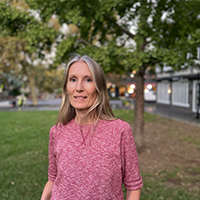 Tracy Ellis was the winner of the 2022 ABR Elizabeth Jolley Short Story Prize for her story ‘Natural Wonder’. She received $6,000. This year’s prize received 1,338 entries from thirty-six different countries. Nina Cullen placed second and received $4,000 for her story ‘Dog Park’, and C.J. Garrow placed third and received $2,500 for his story ‘Whale Fall’. The 2022 Jolley Prize was judged by Amy Baillieu, Melinda Harvey, and John Kinsella. Each of the shortlisted stories were published in the 2022 August issue.
Tracy Ellis was the winner of the 2022 ABR Elizabeth Jolley Short Story Prize for her story ‘Natural Wonder’. She received $6,000. This year’s prize received 1,338 entries from thirty-six different countries. Nina Cullen placed second and received $4,000 for her story ‘Dog Park’, and C.J. Garrow placed third and received $2,500 for his story ‘Whale Fall’. The 2022 Jolley Prize was judged by Amy Baillieu, Melinda Harvey, and John Kinsella. Each of the shortlisted stories were published in the 2022 August issue.
2021
Camilla Chaudhary: ‘The Enemy, Asyndeton’
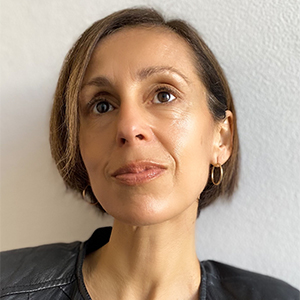 Camilla Chaudhary was the winner of the 2021 ABR Elizabeth Jolley Short Story Prize for their story ‘The Enemy, Asyndeton’. She received $6,000. This year’s prize received 1,428 entries from thirty-six different countries. Lauren Sarazen placed second and received $4,000 for her story ‘There Are No Stars Here, Either’, and John Richards placed third and received $2,500 for his story ‘A Fall from Grace’. The 2021 Jolley Prize was judged by Gregory Day, Melinda Harvey, and Elizabeth Tan. Each of the shortlisted stories are published in the 2021 August issue.
Camilla Chaudhary was the winner of the 2021 ABR Elizabeth Jolley Short Story Prize for their story ‘The Enemy, Asyndeton’. She received $6,000. This year’s prize received 1,428 entries from thirty-six different countries. Lauren Sarazen placed second and received $4,000 for her story ‘There Are No Stars Here, Either’, and John Richards placed third and received $2,500 for his story ‘A Fall from Grace’. The 2021 Jolley Prize was judged by Gregory Day, Melinda Harvey, and Elizabeth Tan. Each of the shortlisted stories are published in the 2021 August issue.
2020
Mykaela Saunders: ‘River Story’
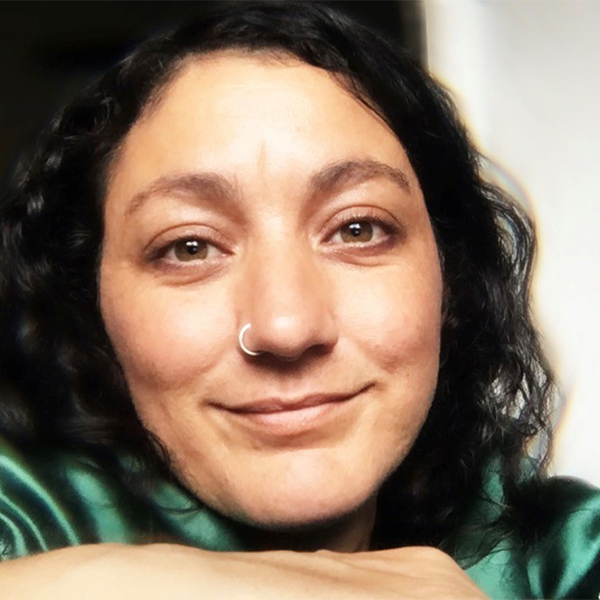 Mykaela Saunders was the winner of the 2020 ABR Elizabeth Jolley Short Story Prize for her story ‘River Story’. Mykaela Saunders received $6,000. C.J. Garrow was placed second for his story ‘Egg Timer’, and Simone Hollander was placed third for her story ‘Hieroglyph’. This year the Jolley Prize attracted almost 1,450 entries from 34 different countries. The judges were Gregory Day, Josephine Rowe, and Ellen van Neerven. The three shortlisted stories appear in our August Fiction issue.
Mykaela Saunders was the winner of the 2020 ABR Elizabeth Jolley Short Story Prize for her story ‘River Story’. Mykaela Saunders received $6,000. C.J. Garrow was placed second for his story ‘Egg Timer’, and Simone Hollander was placed third for her story ‘Hieroglyph’. This year the Jolley Prize attracted almost 1,450 entries from 34 different countries. The judges were Gregory Day, Josephine Rowe, and Ellen van Neerven. The three shortlisted stories appear in our August Fiction issue.
2019
Sonja Dechian: ‘The Point-Blank Murder’
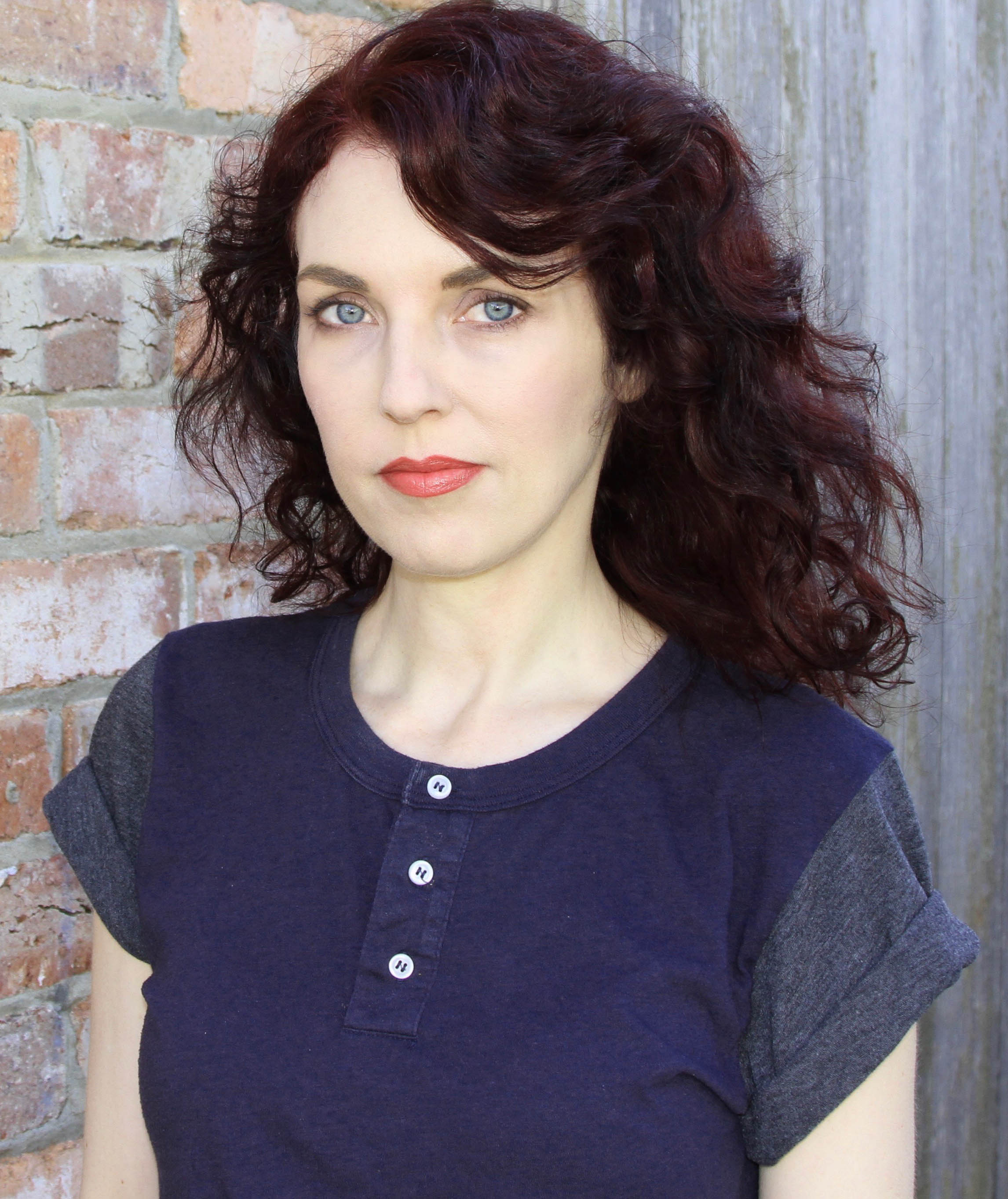 Sonja Dechian was the winner of the 2019 ABR Elizabeth Jolley Short Story Prize for her story ‘The Point-Blank Murder’. She received $5,000. Raaza Jamshed was placed second for her story ‘Miracle Windows’, and Morgan Nunan was placed third for his story ‘Rubble Boy’. The judges were Maxine Beneba Clarke, John Kinsella and Beejay Silcox. Subscribers can read all three stories in the 2019 Fiction issue.
Sonja Dechian was the winner of the 2019 ABR Elizabeth Jolley Short Story Prize for her story ‘The Point-Blank Murder’. She received $5,000. Raaza Jamshed was placed second for her story ‘Miracle Windows’, and Morgan Nunan was placed third for his story ‘Rubble Boy’. The judges were Maxine Beneba Clarke, John Kinsella and Beejay Silcox. Subscribers can read all three stories in the 2019 Fiction issue.
2018
Madelaine Lucas: ‘Ruins’
M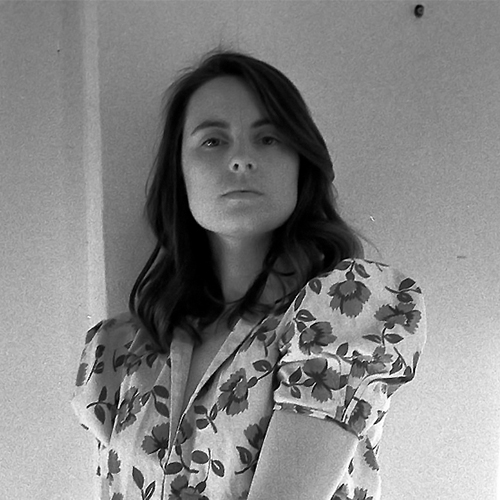 adelaine Lucas was named the winner of the 2018 ABR Elizabeth Jolley Short Story Prize for her story ‘Ruins’. Madelaine Lucas receives $7,000. Sharmini Aphrodite was placed second for her story ‘Between the Mountain and the Sea’ and Claire Aman placed third for her story 'Vasco'. The judges were Patrick Allington, Michelle Cahill, and Beejay Silcox. Subscribers can read all three shortlisted stories in the August 2018 Fiction issue. The judges also commended three other stories: ‘Joan Mercer’s Fertile Head’ by S.J. Finn, ‘Hardflip’ by Mirandi Riwoe, and ‘Break Character’ by Chloe Wilson.
adelaine Lucas was named the winner of the 2018 ABR Elizabeth Jolley Short Story Prize for her story ‘Ruins’. Madelaine Lucas receives $7,000. Sharmini Aphrodite was placed second for her story ‘Between the Mountain and the Sea’ and Claire Aman placed third for her story 'Vasco'. The judges were Patrick Allington, Michelle Cahill, and Beejay Silcox. Subscribers can read all three shortlisted stories in the August 2018 Fiction issue. The judges also commended three other stories: ‘Joan Mercer’s Fertile Head’ by S.J. Finn, ‘Hardflip’ by Mirandi Riwoe, and ‘Break Character’ by Chloe Wilson.
2017
Eliza Robertson: ‘Pheidippides’
 Eliza Robertson was named the winner of the 2017 ABR Elizabeth Jolley Short Story Prize for her story ‘Pheidippides’. Author David Malouf announced Eliza Robertson as the overall winner at a ceremony at Potts Point Bookshop, Sydney. She received $7,000 for her story. Dominic Amerena placed second for his story ‘The Leaching Layer’ and Lauren Aimee Curtis came third for her story ‘Butter’. The 2017 Jolley Prize was judged by ABR Deputy Editor Amy Baillieu, and authors Chris Flynn and Ellen van Neerven. Subscribers can read all three shortlisted stories in the August 2017 Fiction issue. The judges also commended three stories – ‘Contributory Negligence’ by Stevi-Lee Alver, ‘The Man I Should Have Married’ by Catherine Chidgey, and ‘The Fog Harvester’ by Marie Gethins.
Eliza Robertson was named the winner of the 2017 ABR Elizabeth Jolley Short Story Prize for her story ‘Pheidippides’. Author David Malouf announced Eliza Robertson as the overall winner at a ceremony at Potts Point Bookshop, Sydney. She received $7,000 for her story. Dominic Amerena placed second for his story ‘The Leaching Layer’ and Lauren Aimee Curtis came third for her story ‘Butter’. The 2017 Jolley Prize was judged by ABR Deputy Editor Amy Baillieu, and authors Chris Flynn and Ellen van Neerven. Subscribers can read all three shortlisted stories in the August 2017 Fiction issue. The judges also commended three stories – ‘Contributory Negligence’ by Stevi-Lee Alver, ‘The Man I Should Have Married’ by Catherine Chidgey, and ‘The Fog Harvester’ by Marie Gethins.
2016
Josephine Rowe: ‘Glisk’
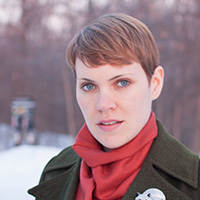 Josephine Rowe (Australia) was named the winner of the 2016 ABR Elizabeth Jolley Short Story Prize for her story ‘Glisk’ at a ceremony during the Melbourne Writers Festival. She received $7,000 for her story which was chosen from a field of nearly 1400 entries from thirty-eight countries. Anthony Lawrence (Australia) placed second for his story ‘Ash’ and Jonathan Tel (UK) came third for his story ‘The Water Calligrapher's Women’. The 2016 Jolley Prize was judged by ABR Deputy Editor Amy Baillieu, and authors Maxine Beneba Clarke and David Whish-Wilson. Subscribers can read all three shortlisted stories in the August 2016 Fiction issue. The judges also commended three stories – ‘Help Me Harden My Heart’ by Dom Amerena, ‘Window’ by Cate Kennedy, and ‘Slut Trouble’ by Beejay Silcox.
Josephine Rowe (Australia) was named the winner of the 2016 ABR Elizabeth Jolley Short Story Prize for her story ‘Glisk’ at a ceremony during the Melbourne Writers Festival. She received $7,000 for her story which was chosen from a field of nearly 1400 entries from thirty-eight countries. Anthony Lawrence (Australia) placed second for his story ‘Ash’ and Jonathan Tel (UK) came third for his story ‘The Water Calligrapher's Women’. The 2016 Jolley Prize was judged by ABR Deputy Editor Amy Baillieu, and authors Maxine Beneba Clarke and David Whish-Wilson. Subscribers can read all three shortlisted stories in the August 2016 Fiction issue. The judges also commended three stories – ‘Help Me Harden My Heart’ by Dom Amerena, ‘Window’ by Cate Kennedy, and ‘Slut Trouble’ by Beejay Silcox.
2015
Rob Magnuson Smith: ‘The Elector of Nossnearly’
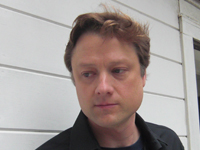 Rob Magnuson Smith (UK/US) was named the winner of the 2015 ABR Elizabeth Jolley Short Story Prize for his story ‘The Elector of Nossnearly’ by Steven Carroll at an event at the 2015 Brisbane Writers Festival. He received $5,000 for his story which was chosen from a field of over 1,200 entries sent in from thirty-one different countries. Michelle Cahill placed second for her story ‘Borges and I’ and Harriet McKnight (Australia) came third for her story ‘Crest’. The judges on this occasion were ABR Deputy Editor Amy Baillieu, poet and academic Sarah Holland-Batt and author Paddy O'Reilly. Subscribers can read all three shortlisted stories in the September 2015 Fiction issue.
Rob Magnuson Smith (UK/US) was named the winner of the 2015 ABR Elizabeth Jolley Short Story Prize for his story ‘The Elector of Nossnearly’ by Steven Carroll at an event at the 2015 Brisbane Writers Festival. He received $5,000 for his story which was chosen from a field of over 1,200 entries sent in from thirty-one different countries. Michelle Cahill placed second for her story ‘Borges and I’ and Harriet McKnight (Australia) came third for her story ‘Crest’. The judges on this occasion were ABR Deputy Editor Amy Baillieu, poet and academic Sarah Holland-Batt and author Paddy O'Reilly. Subscribers can read all three shortlisted stories in the September 2015 Fiction issue.
2014
Jennifer Down: ‘Aokigahara’
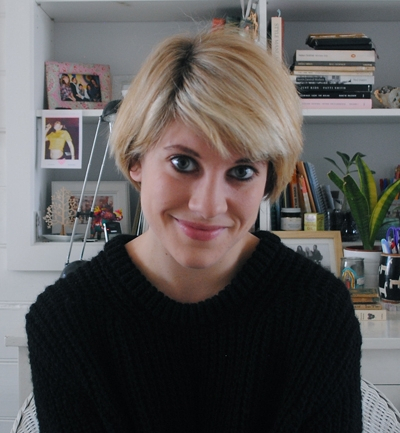 Jennifer Down was named the winner of the 2014 Jolley Prize by Ian Dickson at an event on Saturday 30 August during the Melbourne Writers Festival. She received a total of $5,000 for her winning short story, ‘Aokigahara’. Faith Oxenbridge (New Zealand) came second with her story ‘The Art of Life’, winning $2,000, and Cate Kennedy came third with ‘Doisneau's Kiss’, winning $1,000. The judges on this occasion were author–academics Patrick Allington and Cassandra Atherton and ABR Deputy Editor Amy Baillieu. This was the first year that the Jolley Prize was open to international entrants.
Jennifer Down was named the winner of the 2014 Jolley Prize by Ian Dickson at an event on Saturday 30 August during the Melbourne Writers Festival. She received a total of $5,000 for her winning short story, ‘Aokigahara’. Faith Oxenbridge (New Zealand) came second with her story ‘The Art of Life’, winning $2,000, and Cate Kennedy came third with ‘Doisneau's Kiss’, winning $1,000. The judges on this occasion were author–academics Patrick Allington and Cassandra Atherton and ABR Deputy Editor Amy Baillieu. This was the first year that the Jolley Prize was open to international entrants.
2013
Michelle Michau-Crawford: ‘Leaving Elvis’
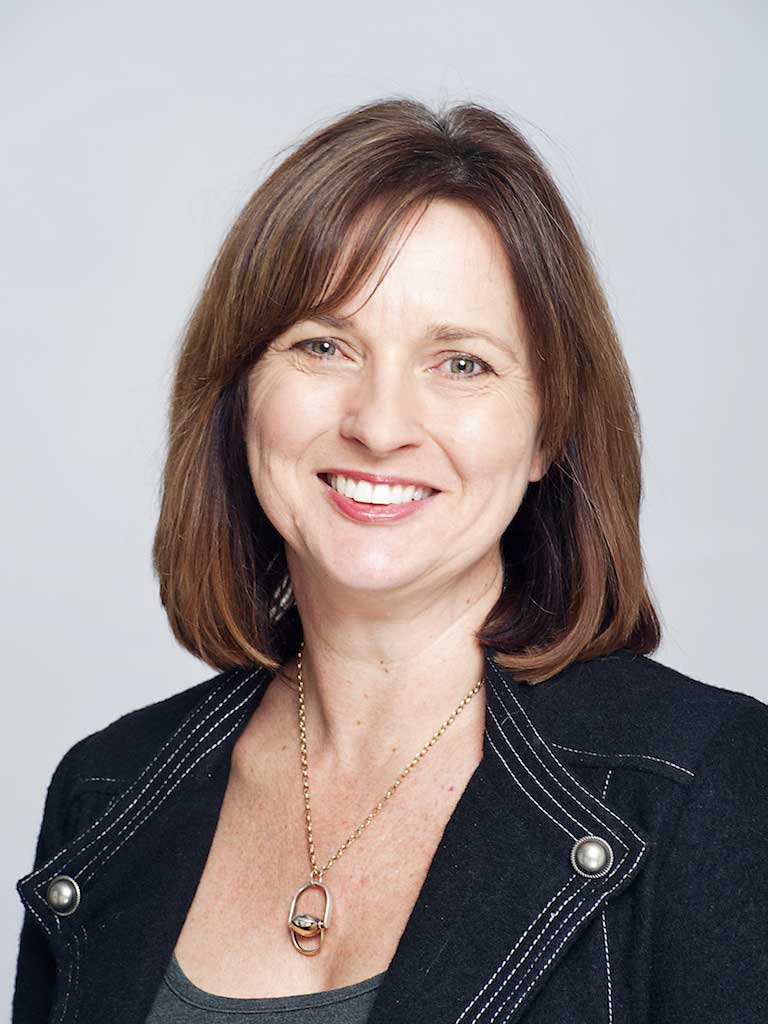 In October 2013 at a lively ceremony held at Gleebooks, David Malouf named Michelle Michau-Crawford’s ‘Leaving Elvis’ as the overall winner of the 2013 ABR Elizabeth Jolley Short Story Prize. The first prize is worth $5000. The judges – Tony Birch, Maria Takolander, and Terri-ann White – could not split the other two shortlisted stories, Rebekah Clarkson’s ‘The Five Truths of Manhood’ and Kim Mahood’s ‘The Accident’; each author receives $1500.
In October 2013 at a lively ceremony held at Gleebooks, David Malouf named Michelle Michau-Crawford’s ‘Leaving Elvis’ as the overall winner of the 2013 ABR Elizabeth Jolley Short Story Prize. The first prize is worth $5000. The judges – Tony Birch, Maria Takolander, and Terri-ann White – could not split the other two shortlisted stories, Rebekah Clarkson’s ‘The Five Truths of Manhood’ and Kim Mahood’s ‘The Accident’; each author receives $1500.
In 2013, ABR also held a Readers’ Choice Award. Readers were invited to choose their favourite out of the three shortlisted stories. They voted Rebekah Clarkson’s ‘The Five Truths of Manhood’ as their favourite.
2012
Sue Hurley: ‘Patterns in Nature’
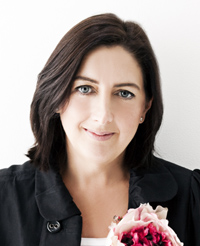 Sue Hurley won the 2012 ABR Elizabeth Jolley Short Story Prize for her story ‘Patterns in Nature’. Hurley received $5000 for her winning story, which was drawn from a large field of more than 1300 entries. Jack Cox was placed second with ‘Gorgeous Perambulator’, and Ngiare Elliot third with ‘Tended by Foxes’. They received $2000 and $1000, respectively. ABR and the judges congratulate all three authors for their outstanding contributions. The judges on this occasion were Peter Rose, Gregory Day (a winner of the 2011 Jolley Prize), and Maria Takolander (winner in 2010).
Sue Hurley won the 2012 ABR Elizabeth Jolley Short Story Prize for her story ‘Patterns in Nature’. Hurley received $5000 for her winning story, which was drawn from a large field of more than 1300 entries. Jack Cox was placed second with ‘Gorgeous Perambulator’, and Ngiare Elliot third with ‘Tended by Foxes’. They received $2000 and $1000, respectively. ABR and the judges congratulate all three authors for their outstanding contributions. The judges on this occasion were Peter Rose, Gregory Day (a winner of the 2011 Jolley Prize), and Maria Takolander (winner in 2010).
2011
Carrie Tiffany: ‘Before He Left the Family’
Gregory Day: ‘The Neighbour’s Beans’
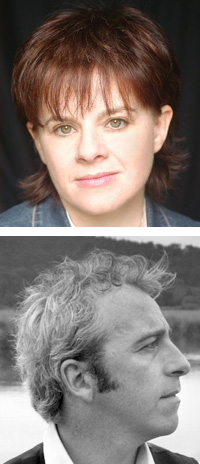 Carrie Tiffany (‘Before He Left the Family’) and Gregory Day (‘The Neighbour's Beans’) were the joint winners of the 2011 ABR Elizabeth Jolley Short Story Prize. They shared a first prize of $5000. Four stories were shortlisted, and Claire Aman (‘Milk Tray’) and Gaylene Carbis (‘What’s Richard Ford Got to Do With It?’) both received $1000. The judges on this occasion were Tony Birch (author of Blood), Mark Gomes (then-Deputy Editor of ABR), and Terri-ann White (Director of UWA Publishing). All four stories were published in the special Fiction-themed October 2011 issue of ABR.
Carrie Tiffany (‘Before He Left the Family’) and Gregory Day (‘The Neighbour's Beans’) were the joint winners of the 2011 ABR Elizabeth Jolley Short Story Prize. They shared a first prize of $5000. Four stories were shortlisted, and Claire Aman (‘Milk Tray’) and Gaylene Carbis (‘What’s Richard Ford Got to Do With It?’) both received $1000. The judges on this occasion were Tony Birch (author of Blood), Mark Gomes (then-Deputy Editor of ABR), and Terri-ann White (Director of UWA Publishing). All four stories were published in the special Fiction-themed October 2011 issue of ABR.
Four stories were commended in the 2011 Jolley Prize. They were: ‘Russell Drysdale's Trousers’ by Catherine Moffat, ‘Nitrogen’ by Meg Mundell, ‘Bad Luck’ by Rose Lane, and ‘A Body of Water’ by Else Fitzgerald.
2010
Maria Takolander: ‘A Roānkin Philosophy of Poetry’
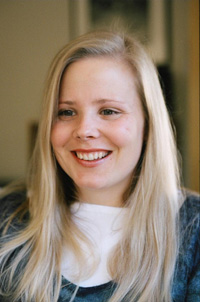 Maria Takolander won the inaugural Australian Book Review Short Story Competition. She received $2000. The judges – Chris Flynn and Peter Rose (Editor of ABR) – were impressed, and amused, by ‘A Roānkin Philosophy of Poetry’, an artful take on academic intrigue and absurdism. Maria Takolander’s story appeared in the December 2010–January 2011 issue of ABR. Placed second was Cate Kennedy for ‘Sleepers’ ($500 prize).
Maria Takolander won the inaugural Australian Book Review Short Story Competition. She received $2000. The judges – Chris Flynn and Peter Rose (Editor of ABR) – were impressed, and amused, by ‘A Roānkin Philosophy of Poetry’, an artful take on academic intrigue and absurdism. Maria Takolander’s story appeared in the December 2010–January 2011 issue of ABR. Placed second was Cate Kennedy for ‘Sleepers’ ($500 prize).
In 2010, ABR also held a Readers’ Choice Award. Readers were invited to choose their favourite out of the seven stories shortlisted. They voted Josephine Rowe's ‘Suitable for a Lampshade’ as their favourite, which was published in the February 2011 issue. The other shortlisted stories were: ‘The Virus - Travel Notes’ by David Cohen, ‘Angus's Playground’ by S.J. Finn, ‘Honey’ by Erin Gough, and ‘The Body’ by Joan Phillip.
Past winners of the Calibre Essay Prize
ABR subscribers can read all previous prize-winning and shortlisted essays to the Calibre Essay Prize. If you aren't a subscriber, digital subscriptions begin at only $10 per month. Click here to become an ABR subscriber.
2024
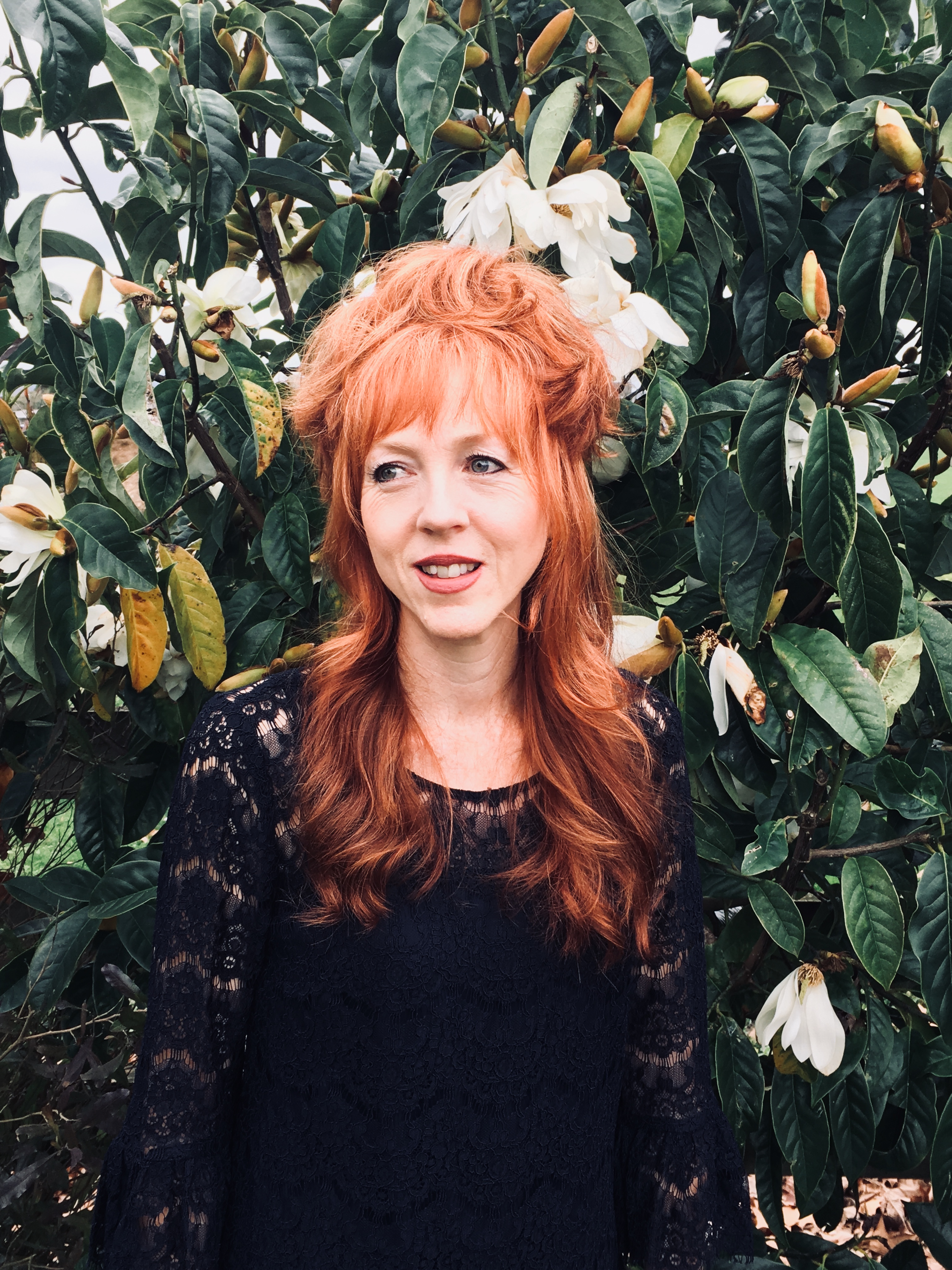 Tracey Slaughter ‘why your hair is long & your stories short’
Tracey Slaughter ‘why your hair is long & your stories short’
Tracey Slaughter won the eighteenth Calibre Essay Prize, worth a total of $10,000. Slaughter received $5,000 for her essay ‘why your hair is long & your stories short’, while the runner-up, Natasha Sholl received $3,000 for her essay, ‘Hold Your Nerve’, and Nicole Hasham received $2,000 for her essay ‘Bloodstone’.
The judges – Amy Baillieu, Shannon Burns, and Beejay Silcox – chose ‘why your hair is long & your stories short’ from a field of 567 entries from twenty-eight countries.
2023
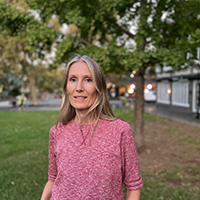 Tracy Ellis ‘Flow States’
Tracy Ellis ‘Flow States’
Writer and editor Tracy Ellis has won the seventeenth Calibre Essay Prize, worth a total of $7,500. Ellis receives $5,000 for her essay ‘Flow States’, while the runner-up, Bridget Vincent receives $2,500 for her essay, ‘Child Adjacent’.
The judges – Yves Rees (past winner of the Calibre Prize), Peter Rose (Editor of ABR), and Beejay Silcox (critic and artistic director of the Canberra Writers Festival) – chose ‘Flow States’ from a field of 397 entries. They came from twenty-four different countries – a bustling, global field.
 2022
2022
Simon Tedeschi: ‘This Woman My Grandmother’
Distinguished classical musician Simon Tedeschi has won the sixteenth Calibre Essay Prize, worth a total of $7,500. Tedeschi receives $5,000 for his essay ‘This Woman My Grandmother’, while the runner-up, Sarah Gory receives $2,500 for her essay, ‘Ghosts, Ghosts Everywhere’.
The judges – Declan Fry, Beejay Silcox and Peter Rose, Editor of ABR – selected a shortlist of twelve essays from a field of 569 entries from seventeen different countries.
2021
Theodore Ell: 'Façades of Lebanon'
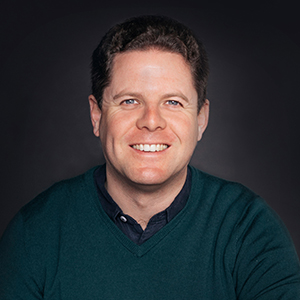 Theodore Ell is the winner of the 2021 Calibre Essay Prize, worth a total of $7,500, for his essay ‘Façades of Lebanon’. The judges wrote that the essay is ‘a gripping piece of reportage and a powerful meditation on the bonds of community in a time of turmoil and upheaval. It builds slowly, ominously, from the eerie quiet of Beirut during lockdown towards the catastrophic port explosion on 4 August 2020’. Ell receives $5,000.
Theodore Ell is the winner of the 2021 Calibre Essay Prize, worth a total of $7,500, for his essay ‘Façades of Lebanon’. The judges wrote that the essay is ‘a gripping piece of reportage and a powerful meditation on the bonds of community in a time of turmoil and upheaval. It builds slowly, ominously, from the eerie quiet of Beirut during lockdown towards the catastrophic port explosion on 4 August 2020’. Ell receives $5,000.
Anita Punton was named runner-up for ‘May Day’, a poignant memoir about piecing together her Olympic gymnast father’s life after his death. Anita receives $2,500.
ABR Editor Peter Rose judged the prize with Sheila Fitzpatrick and Billy Griffiths. They chose Theodore Ell's winning essay from 638 entries from twenty-eight different countries.
2020
Yves Rees: 'Reading the Mess Backwards'
 Yves Rees is the winner of the 2020 Calibre Essay Prize, worth a total of $7,500, for their essay ‘Reading the Mess Backwards’. As Rees writes, the essay is ‘a story of trans becoming that digs into the messiness of bodies, gender and identity’. Yves Rees receives $5,000.
Yves Rees is the winner of the 2020 Calibre Essay Prize, worth a total of $7,500, for their essay ‘Reading the Mess Backwards’. As Rees writes, the essay is ‘a story of trans becoming that digs into the messiness of bodies, gender and identity’. Yves Rees receives $5,000.
Kate Middleton was named runner-up for ‘The Dolorimeter’, a highly personal account of the author’s experience with illness. She receives $2,500.
ABR Editor Peter Rose judged the Prize with J.M. Coetzee (Nobel Laureate) and Lisa Gorton, (poet, novelist, and essayist). They chose Yves Rees's winning essay from almost 600 entries from twenty-nine different countries, a record field.
‘Reading the Mess Backwards’ appears in the June-July 2020 issue.
2019
Grace Karskens: 'Nah Doongh's Song'
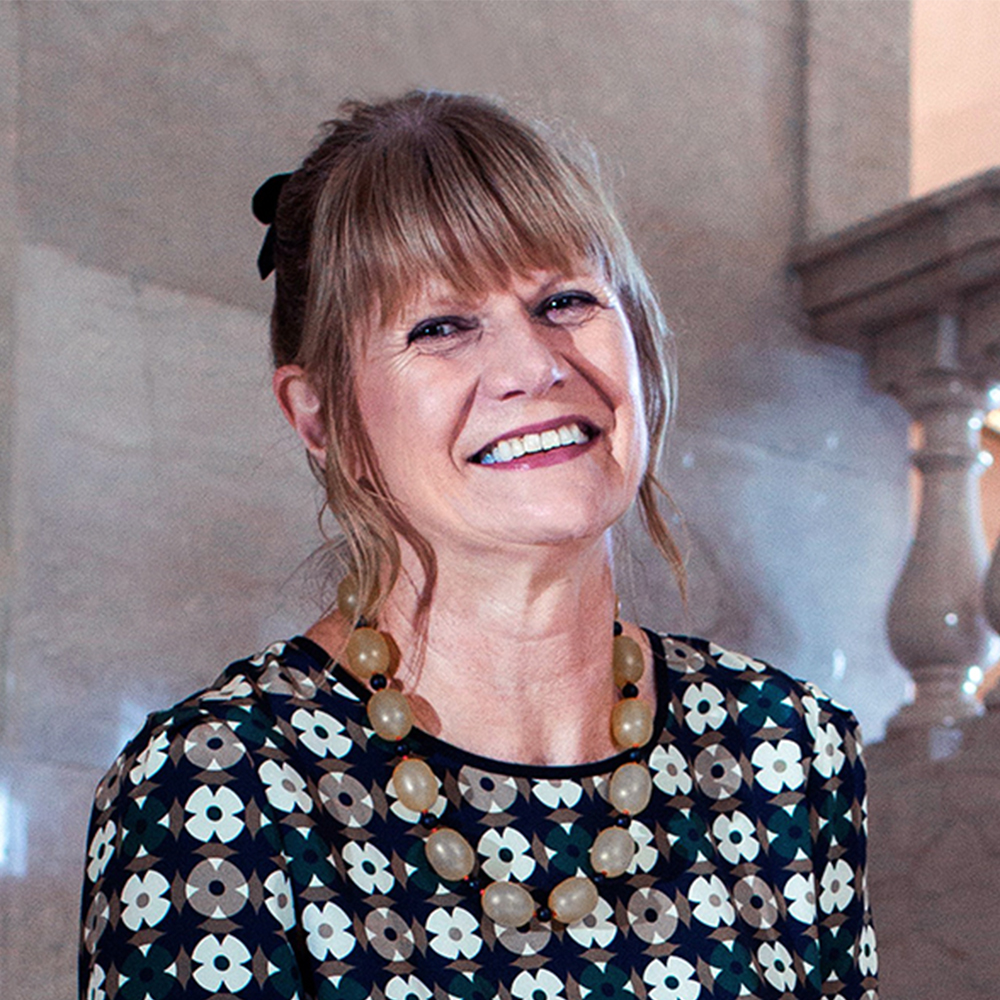 Grace Karskens is the winner of the thirteenth Calibre Essay Prize. The judges – J.M. Coetzee, author and winner of the Nobel Prize in Literature in 2003, Anna Funder, author of the international bestseller Stasiland and the Miles Franklin Award-winning novel All That I Am, and ABR Editor Peter Rose – selected Grace's essay ‘Nah Doongh's Song’ from a field of over 450 essays submitted from twenty-two countries. Grace receives $5,000, and her essay appears in the August Indigenous issue of Australian Book Review.
Grace Karskens is the winner of the thirteenth Calibre Essay Prize. The judges – J.M. Coetzee, author and winner of the Nobel Prize in Literature in 2003, Anna Funder, author of the international bestseller Stasiland and the Miles Franklin Award-winning novel All That I Am, and ABR Editor Peter Rose – selected Grace's essay ‘Nah Doongh's Song’ from a field of over 450 essays submitted from twenty-two countries. Grace receives $5,000, and her essay appears in the August Indigenous issue of Australian Book Review.
‘Nah Doongh's Song’ examines the unusually long life of one of the first Aboriginal children who grew up in conquered land. Born around 1800, Nah Doongh lived until 1898. Her losses, her peregrinations, her strong, dignified character are the subjects of this questing essay, in which the author states: ‘Biography is not a finite business; it’s a process, a journey. I have been researching, writing, and thinking about Nah Doongh … for over a decade now.’ The discoveries she makes along the way – the portrait she finally tracks down – are very stirring.
This winner of the second prize, worth $2,500, is Sarah Walker. Her essay, entitled ‘Floundering’, appears in the June–July 2019 issue.
2018
Lucas Grainger-Brown: 'We Three Hundred'
 Lucas Grainger-Brown is the winner of the twelfth Calibre Essay Prize. The judges – novelist Andrea Goldsmith, NewSouth Executive Publisher Phillipa McGuinness, and ABR Editor Peter Rose – chose Lucas’s essay ‘We Three Hundred’ from a field of over 200 essays submitted from thirteen countries. Lucas receives $5,000, and his essay appears in the April 400th issue of Australian Book Review.
Lucas Grainger-Brown is the winner of the twelfth Calibre Essay Prize. The judges – novelist Andrea Goldsmith, NewSouth Executive Publisher Phillipa McGuinness, and ABR Editor Peter Rose – chose Lucas’s essay ‘We Three Hundred’ from a field of over 200 essays submitted from thirteen countries. Lucas receives $5,000, and his essay appears in the April 400th issue of Australian Book Review.
‘We Three Hundred’ is a candid and unsentimental account of life as a cadet at the Australian Defence Force Academy in Canberra for a bookish, idealistic adolescent straight out of high school.
This winner of the second prize, worth $2,500, is Kirsten Tranter. Her essay, entitled ‘Once Again’, appears in the May 2018 issue.
2017
Michael Adams: 'Salt Blood'
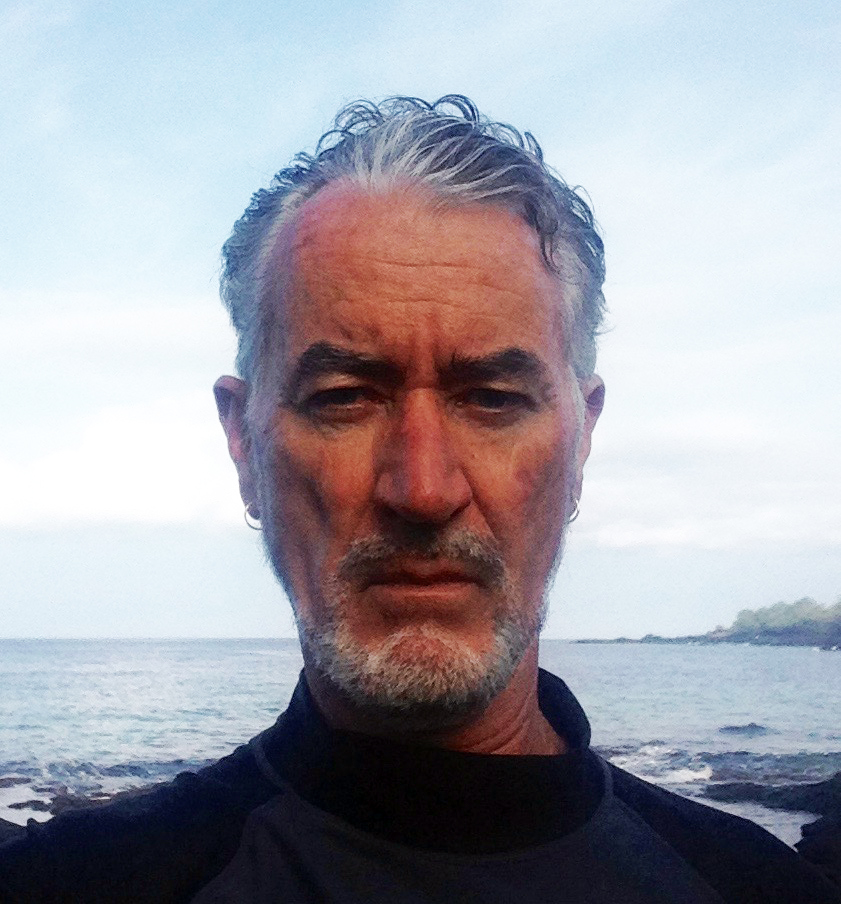 Michael Adams is the winner of the eleventh Calibre Essay Prize, worth $5,000. The judges – award-winning author and historian Sheila Fitzpatrick, ABR Editor Peter Rose, and Picador Publisher Geordie Williamson – chose Michael Adams’s essay ‘Salt Blood’ from a field of almost 200 essays submitted from fourteen countries.
Michael Adams is the winner of the eleventh Calibre Essay Prize, worth $5,000. The judges – award-winning author and historian Sheila Fitzpatrick, ABR Editor Peter Rose, and Picador Publisher Geordie Williamson – chose Michael Adams’s essay ‘Salt Blood’ from a field of almost 200 essays submitted from fourteen countries.
‘Salt Blood’ is a remarkable and highly original meditation on freediving and mortality.
This year ABR has added a second prize, worth $2,500. The winner is Darius Sepehri, a researcher and PhD student at the University of Sydney. His essay – entitled ‘To Speak of Sorrow’ (published in the August issue) – is about the many kinds of grief and their different expressions in writing and culture, as lament, testimony, or ritual.
Michael Adams's winning essay was published in the June-July 2017 issue of ABR.
2016
Michael Winkler: 'The Great Red Whale'
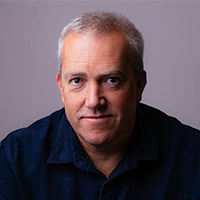 Michael Winkler was the winner of the tenth Calibre Prize, worth $5,000. The judges – Sophie Cunningham and ABR Editor and CEO Peter Rose – chose Winkler’s essay from a large field.
Michael Winkler was the winner of the tenth Calibre Prize, worth $5,000. The judges – Sophie Cunningham and ABR Editor and CEO Peter Rose – chose Winkler’s essay from a large field.
‘The Great Red Whale’ is an essay about fractures, overlaying the ruptures within the author's psyche with the fissure between Indigenous and non-Indigenous Australians, something he believes keeps us 'heartsore as a nation'. This excoriating yet remarkably subtle meditation is also a tribute to consolations: landscape, specifically the desert of Central Australia, and literature, notably Moby-Dick.
Michael Winkler’s winning essay was published in the June–July 2016 issue of ABR.
2015
Sophie Cunningham: 'Staying with the trouble'
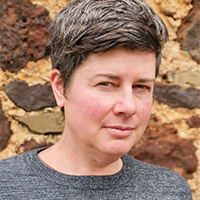 Sophie Cunningham was the winner of the ninth Calibre Prize, worth $5000. The judges – Delia Falconer and ABR Editor and CEO Peter Rose – chose Cunningham’s essay from a large field.
Sophie Cunningham was the winner of the ninth Calibre Prize, worth $5000. The judges – Delia Falconer and ABR Editor and CEO Peter Rose – chose Cunningham’s essay from a large field.
‘Staying with the trouble’ describes an epic walk up Broadway in New York, and others like it. The tone is self-deprecating, conversational, and ‘gloriously social’, but all sorts of themes arise along the way: Alzheimer’s, Horseshoe Crabs, history, writers, violence against women, racism, Selma, and climate change. It is a celebration of ‘randomness’, but also testifies to Sophie Cunningham’s belief in the importance of ‘staying with the trouble’.
Sophie Cunningham’s winning essay is published in the May 2015 issue of ABR
2014
Christine Piper: 'Unearthing the Past'
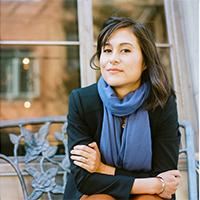 Christine Piper was the winner of the eighth Calibre Prize, worth $5,000. The judges – Morag Fraser and ABR Editor and CEO Peter Rose – chose Piper’s essay from a large field.
Christine Piper was the winner of the eighth Calibre Prize, worth $5,000. The judges – Morag Fraser and ABR Editor and CEO Peter Rose – chose Piper’s essay from a large field.
In her essay, ‘Unearthing the Past’, Christine Piper writes about biological weapons and experiments on living human beings in pre-war and wartime Japan. The remains of just some of the victims (the overall death toll is estimated at 250,000 to 300,000) were discovered in Tokyo twenty-five years ago. They have never been identified. The story takes Dr Piper to Japan, where she interviews key lawyers and activists who are seeking answers. We also meet the unspeakable Shiro Ishii, dubbed the Josef Mengele of Japan. Ishii, who masterminded Japan’s biological warfare program, escaped prosecution through an immunity deal with the United States. He died at home in 1959.
Christine Piper's winning essay is published in the April 2014 issue of ABR. The eighth Calibre Prize was supported by ABR Patron Mr Colin Golvan QC.
2013
Martin Thomas: '"Because it's your country": Bringing Back the Bones to West Arnhem Land'
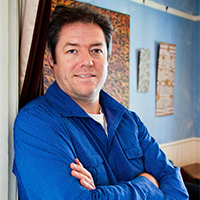 Martin Thomas was the winner of the seventh Calibre Prize, worth $5,000. The judges – Morag Fraser and Editor and CEO Peter Rose – chose his essay from a field of about 150 entries.
Martin Thomas was the winner of the seventh Calibre Prize, worth $5,000. The judges – Morag Fraser and Editor and CEO Peter Rose – chose his essay from a field of about 150 entries.
Dr Thomas’s essay, ‘“Because it’s your country”: Bringing Back the Bones to West Arnhem Land’ stood out in a strong field. The topic – the violation and restitution of Aboriginal remains – is a pressing one, and the author examines it with empathy and considerable knowledge of the personalities and sensitivities involved.
The essay was published in our April 2013 issue. The seventh Calibre Prize was supported by ABR Patron Mr Colin Golvan QC.
2012
Matt Rubinstein: 'Body and Soul: Copyright and Law Enforcement in the Age of the Electronic Book'
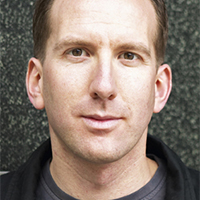 Australian Book Review and Copyright Agency awarded the sixth Calibre Prize for an Outstanding Essay to Matt Rubinstein who receives $7,000. The judges – Professor Ian Donaldson and ABR Editor Peter Rose – chose Rubinstein’s essay from a large field of entries. The second prize of $2,000 was awarded to Colin Nettelbeck, for his essay ‘Now They’ve Gone’.
Australian Book Review and Copyright Agency awarded the sixth Calibre Prize for an Outstanding Essay to Matt Rubinstein who receives $7,000. The judges – Professor Ian Donaldson and ABR Editor Peter Rose – chose Rubinstein’s essay from a large field of entries. The second prize of $2,000 was awarded to Colin Nettelbeck, for his essay ‘Now They’ve Gone’.
Matt Rubinstein's essay appeared in the September 2012 issue of ABR. The essay, entitled ‘Body and Soul: Copyright Law and Enforcement in the Age of the Electronic Book’, could not be more timely – a probing, meticulously researched survey of inherited notions of intellectual copyright and of new, accelerating challenges to such in the face of electronic publishing, the rapid swing to e-books, and ever more laissez-faire attitudes towards authorial rights.
2011
Dean Biron: 'The Death of the Writer' and Moira McKinnon: 'Who Killed Matilda?'
 Australian Book Review awarded the fifth Calibre Prize for an Outstanding Essay to Dean Biron and Moira McKinnon. Each essayist received $5,000. The judges were Jane Goodall (a winner of the Calibre Prize in 2009) and Peter Rose (Editor of ABR). Biron’s essay appeared in the May 2011 issue of ABR, and McKinnon’s in the July–August 2011 issue. Copyright Agency Limited supported the Prize again in this year.
Australian Book Review awarded the fifth Calibre Prize for an Outstanding Essay to Dean Biron and Moira McKinnon. Each essayist received $5,000. The judges were Jane Goodall (a winner of the Calibre Prize in 2009) and Peter Rose (Editor of ABR). Biron’s essay appeared in the May 2011 issue of ABR, and McKinnon’s in the July–August 2011 issue. Copyright Agency Limited supported the Prize again in this year.
Moira McKinnon is a public health physician who has worked in northern Australia and northern Canada. Her essay, ‘Who Killed Matilda?’, is based on her years as the main adviser on communicable diseases for the Australian Department of Health and Ageing.
Dean Biron lives in Brisbane and has a PhD from the University of New England. A former police detective, Dr Biron is currently employed as a senior analyst with the Queensland Children’s Commission. In his essay, ‘The Death of the Writer’ – more polemical than most Calibre entries – Dr Biron opposes a culture that inflames literary ambition and self-identification.
2010
Lorna Hallahan: 'On being Odd' and David Hansen: 'Seeing Truganini'
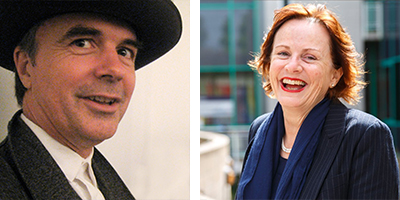 Lorna Hallahan and David Hansen were the joint winners of the 2010 Calibre Prize for an Outstanding Essay, the fourth to be presented by ABR, in association with Copyright Agency Limited’s Cultural Fund. Both authors received $5,000. The judges were critic James Ley and ABR Editor Peter Rose. Hallahan and Hansen’s essays appeared in the May 2010 issue of ABR.
Lorna Hallahan and David Hansen were the joint winners of the 2010 Calibre Prize for an Outstanding Essay, the fourth to be presented by ABR, in association with Copyright Agency Limited’s Cultural Fund. Both authors received $5,000. The judges were critic James Ley and ABR Editor Peter Rose. Hallahan and Hansen’s essays appeared in the May 2010 issue of ABR.
David Hansen’s essay ‘Death Dance’ was commended in the inaugural prize, in 2007. In ‘Seeing Truganini’, he has forthright things to say about the recent abortive sale of Benjamin Law’s busts of Truganini and Woureddy, and about the controversy surrounding the promulgation of historical artefacts. Dr Hansen deplores the stigma surrounding such works, and is critical of academic and curatorial timidity and silence.
In ‘On Being Odd’, Lorna Hallahan, who teaches at Flinders University, writes about a different form of stigmatisation: the marginalisation of the different, the disabled, the supposedly ‘odd’ or ‘grotesque’.
Click here to download the media release.
2009
Kevin Brophy: ‘“What’re yer looking at yer fuckin’ dog”: Violence and Fear in Žižek’s Post-political Neighbourhood’ and Jane Goodall: 'Footprints'
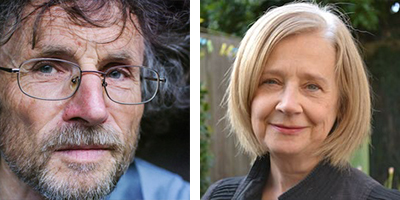 The 2009 Calibre Prize for an Outstanding Essay was shared by Kevin Brophy and Jane Goodall. The judges were Gay Bilson, Peter Rose (Editor of ABR), and Rebecca Starford (then-Deputy Editor of ABR). The Prize – a joint initiative of ABR and Copyright Agency Limited's Cultural Fund – was worth $10,000 in this year, and both authors received $5,000. Their essays were published in the April 2009 issue of ABR.
The 2009 Calibre Prize for an Outstanding Essay was shared by Kevin Brophy and Jane Goodall. The judges were Gay Bilson, Peter Rose (Editor of ABR), and Rebecca Starford (then-Deputy Editor of ABR). The Prize – a joint initiative of ABR and Copyright Agency Limited's Cultural Fund – was worth $10,000 in this year, and both authors received $5,000. Their essays were published in the April 2009 issue of ABR.
Jane Goodall’s theme, like her succinct title (‘Footprints’), has a kind of suaveness and urgency as she explores ideas about ecology and personal responsibility with reference to Kate Grenville, Mrs Aeneas Gunn, Nevil Shute, and a sublime short story by Leo Tolstoy.
Kevin Brophy’s title, ‘What’re yer lookin’ at yer fuckin’ dog?’, introduces an amazing tale of domestic mayhem and incivility in present-day inner Melbourne. Kevin Brophy’s tormentors may have been the neighbours from hell, but what a tale it is. To make sense of this five-year drama, Kevin Brophy draws on the Slovenian philosopher Slavoj Žižek and his theory that violence – ubiquitous violence, as he sees it – is the very basis of late capitalist ‘post-political’ life.
2008
Rachel Robertson: 'Reaching One Thousand' and Mark Tredinnick: 'A Storm and a Teacup'
 The 2008 Calibre Prize for an Outstanding Essay was won by Rachel Robertson and Mark Tredinnick. This was the first time that the Calibre Prize – a joint initiative of ABR and Copyright Agency Limited's Cultural Fund – was shared. The judges were Kerryn Goldsworthy (a former Editor of ABR), Paul Hetherington (Associate Professor of Writing at the University of Canberra), and Peter Rose (Editor of ABR). The Prize was worth $10,000 in this year. Their essays were published in the February 2008 issue of ABR.
The 2008 Calibre Prize for an Outstanding Essay was won by Rachel Robertson and Mark Tredinnick. This was the first time that the Calibre Prize – a joint initiative of ABR and Copyright Agency Limited's Cultural Fund – was shared. The judges were Kerryn Goldsworthy (a former Editor of ABR), Paul Hetherington (Associate Professor of Writing at the University of Canberra), and Peter Rose (Editor of ABR). The Prize was worth $10,000 in this year. Their essays were published in the February 2008 issue of ABR.
The title of Rachel Robertson’s essay is ‘Reaching One Thousand’. This is an impressively subtle study of autism and of its consequences for the child and for the parents alike. With dry wit it also introduces readers to an eccentric world of professional and amateur mathematicians. Ms Robertson’s adroit depiction of a family recognising and responding to autism is as impressive as her anxious care for her son ‘Ben’ (all names in this essay have been changed).
The title of Mark Tredinnick's essay is ‘A Storm and a Teacup’. It begins in a deluge, as it were: the heavy rains that flooded parts of southeast Australia in June 2007. These falls and the general inundation fail to alleviate Dr Tredinnick’s concerns about ‘the driest continent’ and the need for a profound reassessment of how many resources we all need individually to live equably and sustainably. Tea and its harmonising ceremonies and literature provide the key in this elegant, succinct essay, which also deals with the literary life in the twenty-first century.
2007
Elisabeth Holdsworth: 'An die Nachgeborenen: For Those Who Come After'
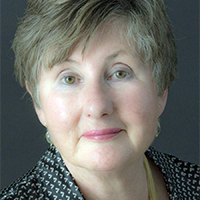 Elisabeth Holdsworth was the winner of the inaugural Calibre Prize for an Outstanding Essay, a joint initiative of Australian Book Review (ABR) and Copyright Agency Limited's Cultural Fund. She received $10,000. Her essay was published in the February 2007 issue of ABR. The judges were Peter Rose (Editor of ABR), Kerryn Goldsworthy (a former Editor of ABR), and Imre Salusinszky (Editor of The Oxford Book of Australian Essays, 1997).
Elisabeth Holdsworth was the winner of the inaugural Calibre Prize for an Outstanding Essay, a joint initiative of Australian Book Review (ABR) and Copyright Agency Limited's Cultural Fund. She received $10,000. Her essay was published in the February 2007 issue of ABR. The judges were Peter Rose (Editor of ABR), Kerryn Goldsworthy (a former Editor of ABR), and Imre Salusinszky (Editor of The Oxford Book of Australian Essays, 1997).
The title of her stirring and luminous essay is ‘An die Nachgeborenen: For Those Who Come After’, from the poem of the same name by Bertolt Brecht. Ms Holdsworth was born in the Netherlands soon after World War II. Her essay describes her recent return to the Netherlands and her family’s vicissitudes and suffering during the war.
'I would like to thank everyone involved in the Calibre Prize. I am deeply honoured to be the inaugural winner. That this essay has gained some attention in this year celebrating four hundred years of Dutch-Australian contact is fantastic.' – Elisabeth Holdsworth.
Elisabeth Holdsworth's second essay, 'Missing from my own life' was published in the October 2008 issue of ABR.
ABR Prizes
Calibre Essay Prize
Australia’s leading award for an original essay is intended to foster new insights into culture, society, and the human condition. All non-fiction subjects are eligible for submission. The prize is worth a total of $10,000, and is supported by Peter McLennan and Mary-Ruth Sindrey.
Peter Porter Poetry Prize
ABR’s prestigious international poetry prize is named in honour of the late Australian poet Peter Porter. The prize is worth a total of AU$10,000. The Peter Porter Poetry is funded by the ABR Patrons, including support in memory of Kate Boyce.
ABR Elizabeth Jolley Short Story Prize
ABR’s annual international short fiction prize is named in honour of the late author Elizabeth Jolley, and is worth a total of AU$12,500. The Prize is supported by ABR Patron Ian Dickson.
Past ABR Fellowships
ABR Behrouz Boochani Fellowship
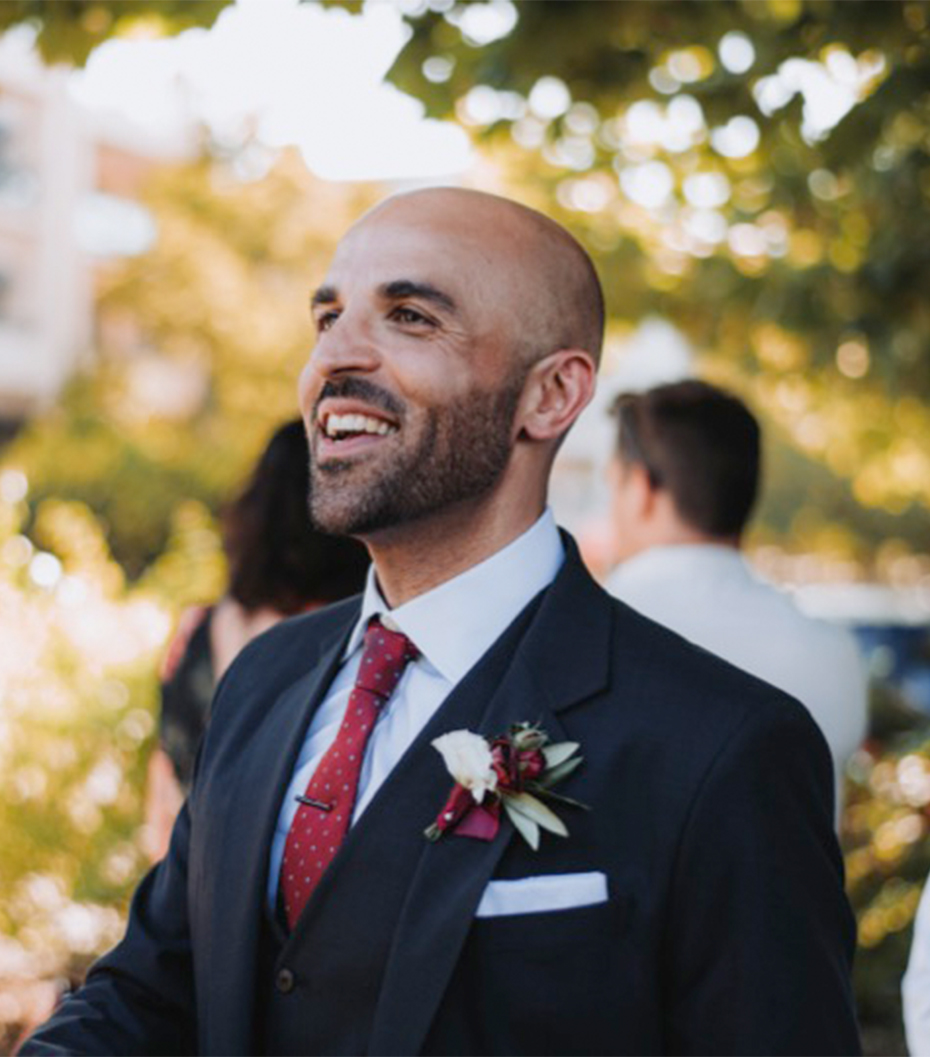 Hessom Razavi was the recipient of the 2020 ABR Behrouz Boochani Fellowship. The Fellowship, worth $10,000, honoured the artistry, courage, and moral leadership of Behrouz Boochani, the award-winning author of No Friend But the Mountains (2018). Dr Razavi made a significant contribution to the magazine in 2020 with a series of three substantial articles on refugees, statelessness, and human rights.
Hessom Razavi was the recipient of the 2020 ABR Behrouz Boochani Fellowship. The Fellowship, worth $10,000, honoured the artistry, courage, and moral leadership of Behrouz Boochani, the award-winning author of No Friend But the Mountains (2018). Dr Razavi made a significant contribution to the magazine in 2020 with a series of three substantial articles on refugees, statelessness, and human rights.
ABR Patrons Fellowship
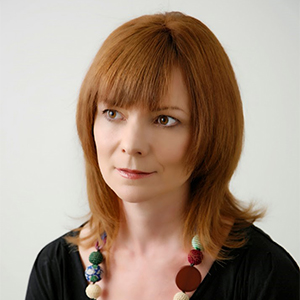 Felicity Plunkett is the recipient of the 2019 ABR Patrons’ Fellowship, worth $10,000. Felicity has been a frequent contributor to the magazine since 2010 and was a past Fellow (2015). A poet, critic, teacher, and editor, Felicity was chosen from a large field and will contribute several articles to ABR over the course of the year.
Felicity Plunkett is the recipient of the 2019 ABR Patrons’ Fellowship, worth $10,000. Felicity has been a frequent contributor to the magazine since 2010 and was a past Fellow (2015). A poet, critic, teacher, and editor, Felicity was chosen from a large field and will contribute several articles to ABR over the course of the year.
ABR Fortieth Birthday Fellowship
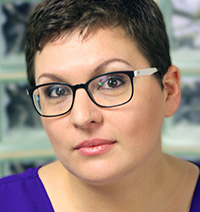 Beejay Silcox is the recipient of the ABR Fortieth Birthday Fellowship worth $10,000. Beejay, who first wrote for us in 2016, has quickly become a regular in our pages, and elsewhere. She will contribute several articles and review essays in 2018, commencing with a survey of magazine culture in our 400th issue (April).
Beejay Silcox is the recipient of the ABR Fortieth Birthday Fellowship worth $10,000. Beejay, who first wrote for us in 2016, has quickly become a regular in our pages, and elsewhere. She will contribute several articles and review essays in 2018, commencing with a survey of magazine culture in our 400th issue (April).
ABR Gender Fellowship
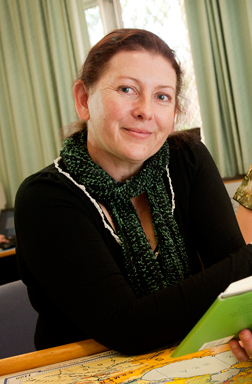
Author and academic Marguerite Johnson is the 2017 ABR Gender Fellow. Her Fellowship essay ‘Picnic at Hanging Rock fifty years on’ looks at Joan Lindsay's 1967 novel Picnic at Hanging Rock, drawing on studies of gender and sexuality, Australian art, and Classics. The ABR Gender Fellowship is worth $7,500. Her essay appeared in the December 2017 issue of ABR. The Fellowship is funded by ABR Patron Emeritus Professor Anne Edwards.
ABR RAFT Fellowship
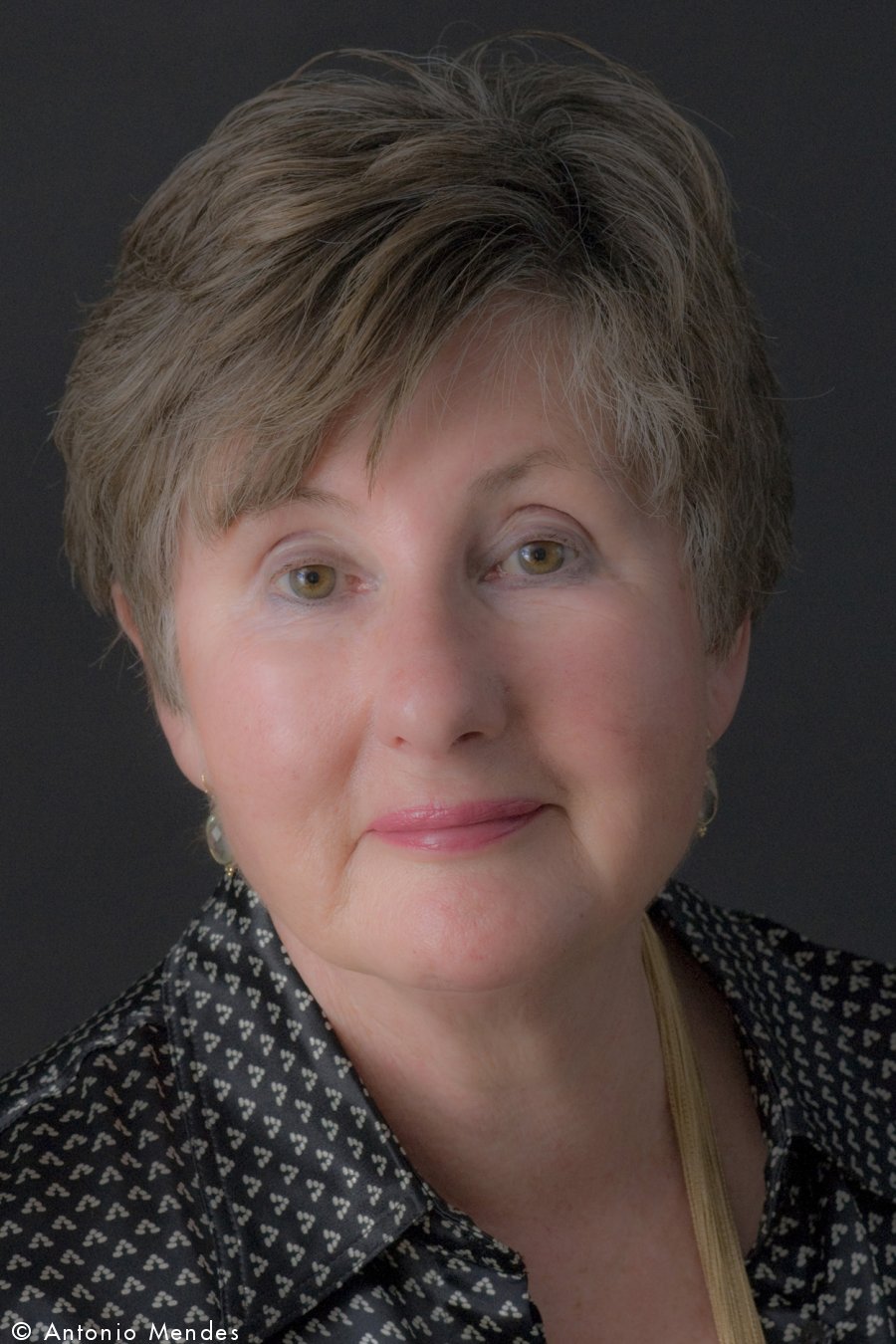 Elisabeth Holdsworth is the 2017 ABR RAFT Fellow. Her essay 'If This Is a Jew' explores the nature of Progressive Judaism as practised in Australia, Israel, and the United States. Her essay appeared in the November 2017 Arts issue of ABR. The Fellowship is supported by the Religious Advancement Foundation Trust.
Elisabeth Holdsworth is the 2017 ABR RAFT Fellow. Her essay 'If This Is a Jew' explores the nature of Progressive Judaism as practised in Australia, Israel, and the United States. Her essay appeared in the November 2017 Arts issue of ABR. The Fellowship is supported by the Religious Advancement Foundation Trust.
ABR Eucalypt Fellowship
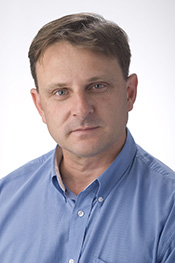 Adelaide novelist and essayist Stephen Orr is the 2017 ABR Eucalypt Fellow. Stephen Orr’s essay 'Ambassadors from Another Time' explores the way the eucalypt 'flourishes from Tasmania to the Philippines, how it has colonised poor soils, provided food for the First Australians, images for May Gibbs’s garden sketches, but also informed a sense of isolation about lost children, and terror in the burnt-out cars left in the wake of Ash Friday.' Stephen Orr's Fellowship essay appeared in the 2017 October Environment issue of ABR. The Eucalypt Fellowship is supported by Eucalypt Australia and the ABR Patrons.
Adelaide novelist and essayist Stephen Orr is the 2017 ABR Eucalypt Fellow. Stephen Orr’s essay 'Ambassadors from Another Time' explores the way the eucalypt 'flourishes from Tasmania to the Philippines, how it has colonised poor soils, provided food for the First Australians, images for May Gibbs’s garden sketches, but also informed a sense of isolation about lost children, and terror in the burnt-out cars left in the wake of Ash Friday.' Stephen Orr's Fellowship essay appeared in the 2017 October Environment issue of ABR. The Eucalypt Fellowship is supported by Eucalypt Australia and the ABR Patrons.
ABR Patrons' Fellowship
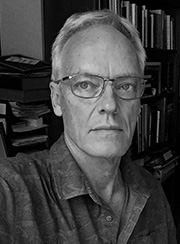 Philip Jones is the ABR Patrons’ Fellow. His essay titled ‘Beyond Songlines’ is revisionist article of considerable importance examining the Bruce Chatwin phenomenon thirty years on – Jones is widely regarded as one of the country’s leading ethnographers and anthropologists. The essay was published in the September 2017 issue of Australian Book Review. We are able to fund this Fellowship with support from our many supporters. We thank all our Patrons.
Philip Jones is the ABR Patrons’ Fellow. His essay titled ‘Beyond Songlines’ is revisionist article of considerable importance examining the Bruce Chatwin phenomenon thirty years on – Jones is widely regarded as one of the country’s leading ethnographers and anthropologists. The essay was published in the September 2017 issue of Australian Book Review. We are able to fund this Fellowship with support from our many supporters. We thank all our Patrons.
ABR RAFT Fellowship
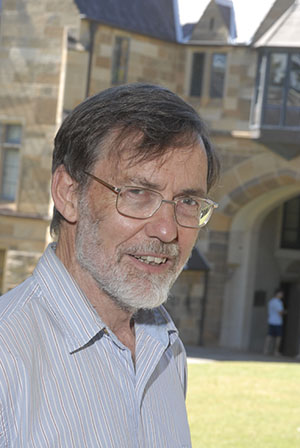 Alan Atkinson, one of Australia's most distinguished and lauded historians, is the recipient of the inaugural ABR RAFT Fellowship. The Fellowship is funded by the Religious Advancement Foundation Trust and is intended to consider the role and significance of religion in society and culture. Alan Atkinson's essay, 'How Do We Live With Ourselves? The Australian National Conscience', was published in the September 2016 issue of Australian Book Review.
Alan Atkinson, one of Australia's most distinguished and lauded historians, is the recipient of the inaugural ABR RAFT Fellowship. The Fellowship is funded by the Religious Advancement Foundation Trust and is intended to consider the role and significance of religion in society and culture. Alan Atkinson's essay, 'How Do We Live With Ourselves? The Australian National Conscience', was published in the September 2016 issue of Australian Book Review.
ABR Laureate's Fellowship
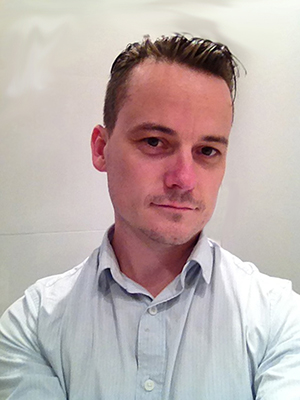 Sydney poet Michael Aiken was the inaugural ABR Laureate's Fellow, chosen by ABR Laureate David Malouf. Michael Aiken used his Fellowship to write an extended narrative poem in the epic tradition. Entitled 'Satan Repentant', this is a book-length poem about revenge, resentment, and remorse. ABR published a long extract from the poem in its August 2016 issue. Michael Aiken's first collection, A Vicious Example (Grand Parade 2014), was shortlisted for the Kenneth Slessor Prize. His poetry and prose have appeared in journals in Australia and overseas. This Fellowship is possible because of the generosity of ABR Patrons.
Sydney poet Michael Aiken was the inaugural ABR Laureate's Fellow, chosen by ABR Laureate David Malouf. Michael Aiken used his Fellowship to write an extended narrative poem in the epic tradition. Entitled 'Satan Repentant', this is a book-length poem about revenge, resentment, and remorse. ABR published a long extract from the poem in its August 2016 issue. Michael Aiken's first collection, A Vicious Example (Grand Parade 2014), was shortlisted for the Kenneth Slessor Prize. His poetry and prose have appeared in journals in Australia and overseas. This Fellowship is possible because of the generosity of ABR Patrons.
ABR Dahl Trust Fellowship
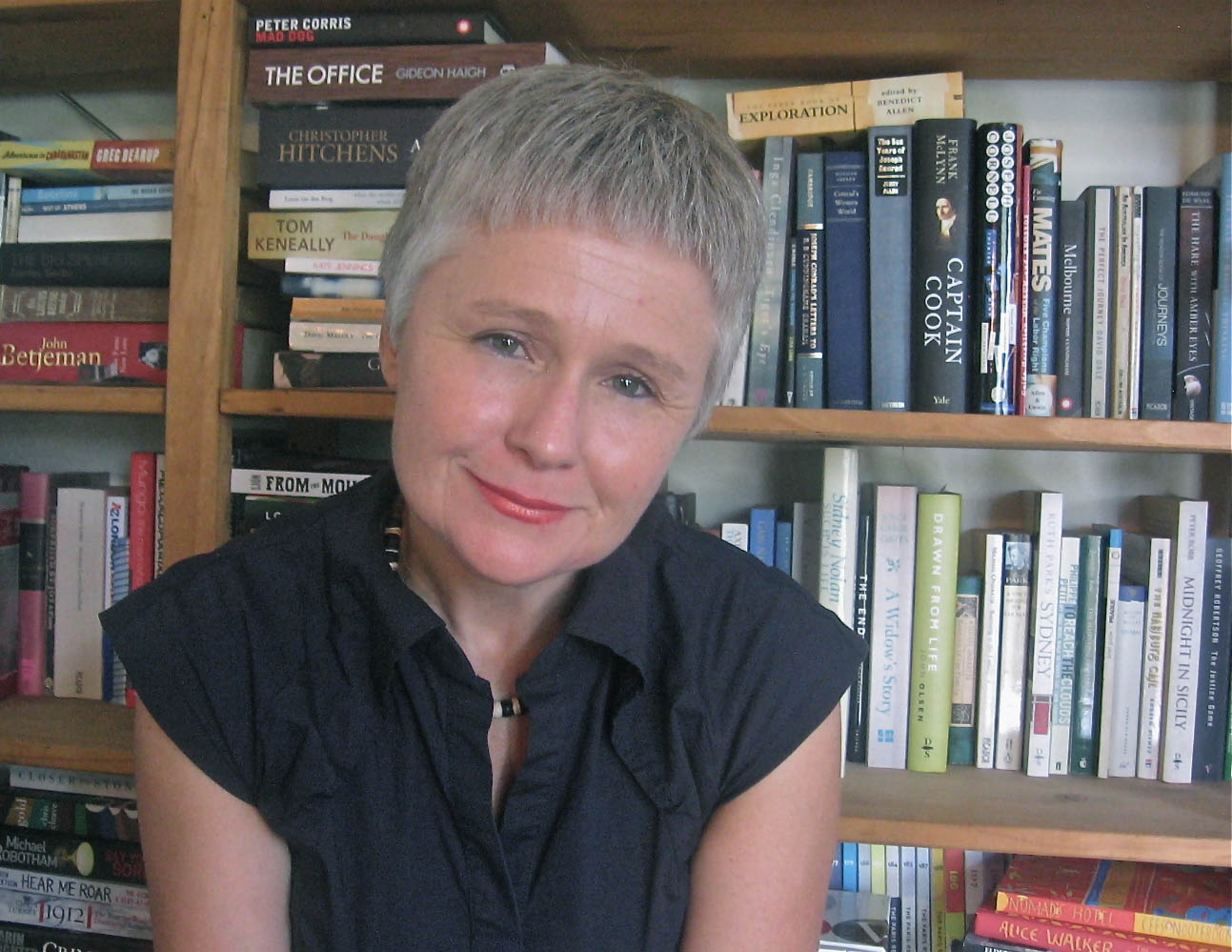 Award-winning author Ashley Hay is the 2015 ABR Dahl Trust Fellow. Her long article, ‘The Forest at the Edge of Time’ examines ‘what our mongrel trees tell us about our past, the present, and the future’. It appears in this year’s Environment issue. Ashley Hay has published several books, including Gum: The Story of Eucalypts and Their Champions (2002), The Railwayman’s Wife (2013), which won the Colin Roderick Award, and (as editor) Best Australian Science Writing 2014. This is the second ABR Fellowship to be funded by the Bjarne K. Dahl Trust.
Award-winning author Ashley Hay is the 2015 ABR Dahl Trust Fellow. Her long article, ‘The Forest at the Edge of Time’ examines ‘what our mongrel trees tell us about our past, the present, and the future’. It appears in this year’s Environment issue. Ashley Hay has published several books, including Gum: The Story of Eucalypts and Their Champions (2002), The Railwayman’s Wife (2013), which won the Colin Roderick Award, and (as editor) Best Australian Science Writing 2014. This is the second ABR Fellowship to be funded by the Bjarne K. Dahl Trust.
ABR Patrons’ Fellowship
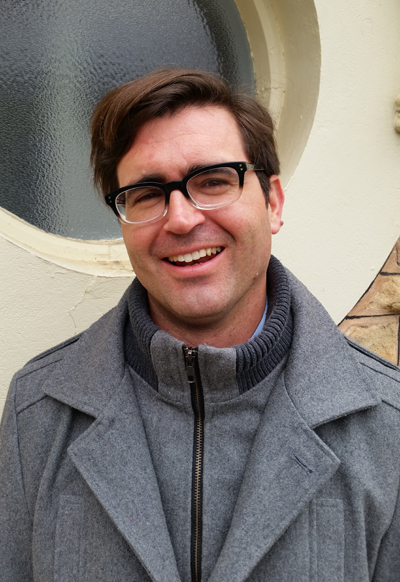
The third ABR Patrons’ Fellowship was for a substantial article on any topic. Shannon Burns was appointed in November 2014. His article, entitled ‘The Scientist of his own experience: A profile of Gerald Murnane’, in the August 2015 issue, combines investigative journalism, critical analysis, and literary and historical research to profile award-winning novelist Gerald Murnane.
ABR Ian Potter Foundation Fellowship
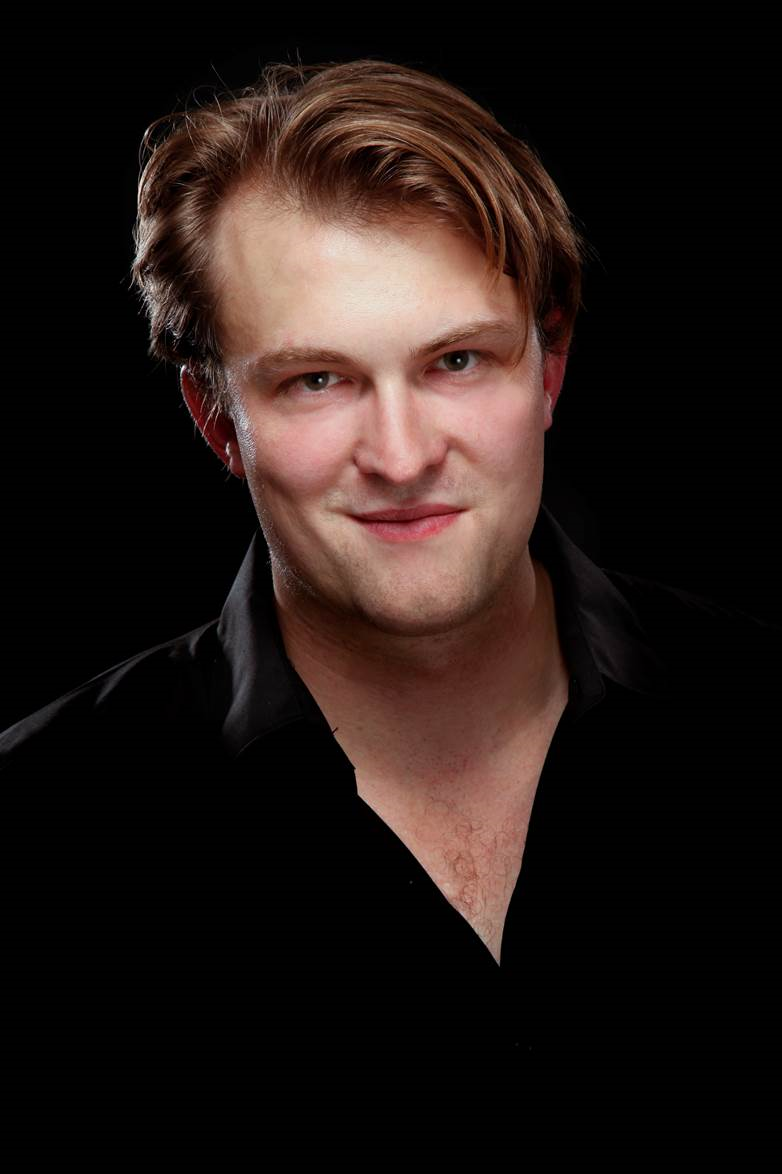
The third ABR Ian Potter Foundation Fellowship was for a substantial article on any topic. James McNamara was appointed in November 2014. His essay, entitled ‘The Golden Age of Television?’, considers the ascendancy of television drama and its cultural significance. The article was the main feature in our inaugural Film and Television issue in April 2015.
ABR Dahl Trust Fellowship
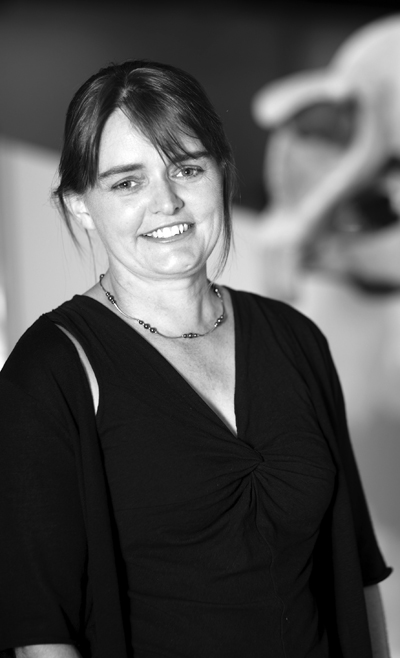
Australian Book Review congratulates the recipient of the ABR Dahl Trust Fellowship, Danielle Clode, for her essay: ‘Seeing the Wood for the Trees’. Clode’s essay examines the representation of eucalypt forests in Australian culture and the implications this has for debates over forest resources. This is the first ABR Fellowship to be funded by the Bjarne K. Dahl Trust.
ABR Ian Potter Foundation Fellowship
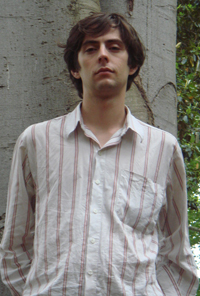 The second ABR Ian Potter Foundation Fellowship was for a substantial article on any aspect of the performing arts. Andrew Fuhrmann was appointed in May 2013 and his article ‘Patrick White: A theatre of his own’ was published in our November 2013 issue. In it Fuhrmann examines the plays of Patrick White and his influence on contemporary theatre.
The second ABR Ian Potter Foundation Fellowship was for a substantial article on any aspect of the performing arts. Andrew Fuhrmann was appointed in May 2013 and his article ‘Patrick White: A theatre of his own’ was published in our November 2013 issue. In it Fuhrmann examines the plays of Patrick White and his influence on contemporary theatre.
ABR George Hicks Foundation Fellowship
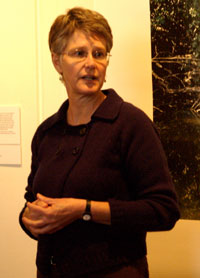 The ABR George Hicks Foundation Fellowship was for a substantial article with a focus on the visual arts. Helen Ennis was the seventh fellow and her article (‘Olive Cotton at Spring Forest’) was the main feature of the 2013 July-August Art issue. In her article Ennis offers a fascinating reading of the great modernist photographer's second marriage and gradual re-emergence as a photographer in the latter decades of her life.
The ABR George Hicks Foundation Fellowship was for a substantial article with a focus on the visual arts. Helen Ennis was the seventh fellow and her article (‘Olive Cotton at Spring Forest’) was the main feature of the 2013 July-August Art issue. In her article Ennis offers a fascinating reading of the great modernist photographer's second marriage and gradual re-emergence as a photographer in the latter decades of her life.
ABR Ian Potter Foundation Fellowship
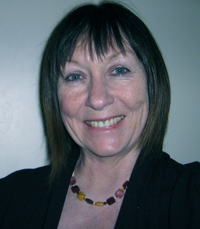 The ABR Ian Potter Foundation Fellowship was for a substantial article with a literary studies focus. Kerryn Goldsworthy was the sixth Fellow. Goldsworthy is a former Editor of ABR and one of Australia’s most prolific and respected critics. In her article, titled ‘Everyone’s a Critic’, Goldsworthy examines the current state of book reviewing in Australia, online and off. ABR published the article in May 2013.
The ABR Ian Potter Foundation Fellowship was for a substantial article with a literary studies focus. Kerryn Goldsworthy was the sixth Fellow. Goldsworthy is a former Editor of ABR and one of Australia’s most prolific and respected critics. In her article, titled ‘Everyone’s a Critic’, Goldsworthy examines the current state of book reviewing in Australia, online and off. ABR published the article in May 2013.
ABR Patrons’ Fellowship
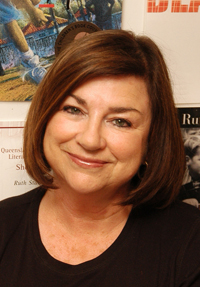 The second ABR Patrons’ Fellowship was for a substantial article with a film, media, or TV focus. Ruth Starke was the fifth Fellow. Starke’s project, titled ‘Media Don’, focuses on the resilient and charismatic South Australian politician Don Dunstan, a long-serving premier who skilfully used the media to fashion his persona and perpetuate his influence, but who in the end was brought down by it. Starke, who used the extensive resources of the Don Dunstan Collection held by the Flinders University Library Special Collections, also sheds light on the private man. Her article is published in the March 2013 issue of ABR.
The second ABR Patrons’ Fellowship was for a substantial article with a film, media, or TV focus. Ruth Starke was the fifth Fellow. Starke’s project, titled ‘Media Don’, focuses on the resilient and charismatic South Australian politician Don Dunstan, a long-serving premier who skilfully used the media to fashion his persona and perpetuate his influence, but who in the end was brought down by it. Starke, who used the extensive resources of the Don Dunstan Collection held by the Flinders University Library Special Collections, also sheds light on the private man. Her article is published in the March 2013 issue of ABR.
ABR Copyright Agency Fellowship
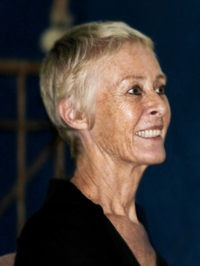 The ABR Copyright Agency Fellowship was part of ABR’s Asian project, with the generous support of Copyright Agency through its Cultural Fund. Jennifer Lindsay was the fourth Fellow. Lindsay wrote a profile of the Indonesian writer Goenawan Mohamad – activist, journalist, editor, essayist, poet, commentator, theatre director, and playwright – whose essays she has been translating for two decades. The profile, 'Man on the Margins', in the October 2012 issue of ABR, focuses on the man and his work, but provides an understanding of the context in which Goenawan Mohamad writes and of the complexities of Indonesia.
The ABR Copyright Agency Fellowship was part of ABR’s Asian project, with the generous support of Copyright Agency through its Cultural Fund. Jennifer Lindsay was the fourth Fellow. Lindsay wrote a profile of the Indonesian writer Goenawan Mohamad – activist, journalist, editor, essayist, poet, commentator, theatre director, and playwright – whose essays she has been translating for two decades. The profile, 'Man on the Margins', in the October 2012 issue of ABR, focuses on the man and his work, but provides an understanding of the context in which Goenawan Mohamad writes and of the complexities of Indonesia.
ABR Sidney Myer Fund Fellowship
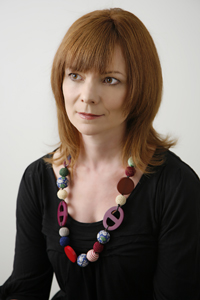 This ABR Sidney Myer Fund Fellowship was for a substantial article with an Indigenous focus. Felicity Plunkett was the third Fellow. Her project was titled ‘Sound Bridges: A Profile of Gurrumul’, a profile of this internationally acclaimed Indigenous artist and his reception. Her essay is published in the June-July 2015 issue of ABR.
This ABR Sidney Myer Fund Fellowship was for a substantial article with an Indigenous focus. Felicity Plunkett was the third Fellow. Her project was titled ‘Sound Bridges: A Profile of Gurrumul’, a profile of this internationally acclaimed Indigenous artist and his reception. Her essay is published in the June-July 2015 issue of ABR.
Plunkett is a freelance writer, critic, and lecturer. She has a BA (Hons) and PhD (Sydney) in Literature. She is the current Poetry Editor of the University of Queensland Press, which recently published her anthology, Thirty Australian Poets. She has taught in several Australian universities and has often written for ABR.
ABR Sidney Myer Fund Fellowship
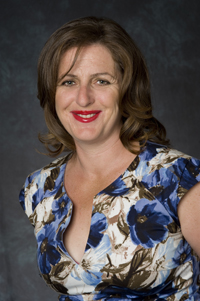 This ABR Sidney Myer Fund Fellowship was for a substantial article with a literary studies focus. Rachel Buchanan was the second Fellow. She is a lecturer in Journalism at La Trobe University, Melbourne, holds a Phd in History from Monash University, and has worked as a journalist for The Age. She is the author of The Parihaka Album: Lest We Forget (2009).
This ABR Sidney Myer Fund Fellowship was for a substantial article with a literary studies focus. Rachel Buchanan was the second Fellow. She is a lecturer in Journalism at La Trobe University, Melbourne, holds a Phd in History from Monash University, and has worked as a journalist for The Age. She is the author of The Parihaka Album: Lest We Forget (2009).
Rachel's long article on archival uses of private papers appears in the December 2011– January 2012 issue of the magazine. In ‘Sweeping up the Ashes’, she investigates the politics and purposes of collecting personal papers at a time when writers, collectors, and institutions are caught between the mystique and permanence of material made by hand and the banality and fragility of machine-made works.
ABR Patrons’ Fellowship
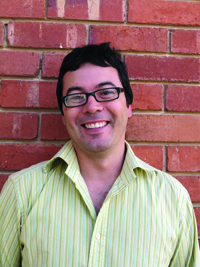 The first ABR Patrons’ Fellowship was for a substantial article with a literary studies focus. Patrick Allington was the inaugural Fellow. Allington’s project was a critique of the Miles Franklin (‘What is Australia Anyway?: The Glorious Limitations of the Miles Franklin Literary Award’). In an article in the June 2011 issue of ABR, he reflects on the Award’s history, strengths, quirks, and past controversies, and fascinatingly, elicits comments from some of the major authors whose works have been excluded from consideration because they don’t ‘present Australian Life in any of its phases’.
The first ABR Patrons’ Fellowship was for a substantial article with a literary studies focus. Patrick Allington was the inaugural Fellow. Allington’s project was a critique of the Miles Franklin (‘What is Australia Anyway?: The Glorious Limitations of the Miles Franklin Literary Award’). In an article in the June 2011 issue of ABR, he reflects on the Award’s history, strengths, quirks, and past controversies, and fascinatingly, elicits comments from some of the major authors whose works have been excluded from consideration because they don’t ‘present Australian Life in any of its phases’.
Open letter concerning Fairfax
There is, understandably, much umbrage and anxiety in Canberra following Fairfax’s decision to remove its literary editor at the Canberra Times and to rely exclusively on literary reviews and commentaries emanating from Fairfax’s two main broadsheets, The Age and the Sydney Morning Herald – broadsheets that will themselves become tabloids next year, presumably with less literary and cultural content. Australian Book Review regrets this decision, and hopes it will be reconsidered. The Canberra Times has long carried some of the most distinctive and extensive books pages in the country. It seems extraordinary that such a wealthy city – a major university city – a national capital even – cannot support its own bespoke literary pages and must, like some outpost, rely on the word from Melbourne or Sydney. Variety of opinion and sensibility in such a deplorably concentrated media environment as ours is surely worth defending. Without it there will be many victims: writers, readers, critics, booksellers, publishers, etc. We support the campaign to overturn this unfortunate and philistine economy.
Below we carry an open letter from many of those involved in this campaign. We will update it regularly as more names are added, and we welcome readers’ comments.
Peter Rose
Editor, Australian Book Review
Dear Editor,
We, the undersigned, wish to draw to national attention the implication of the upcoming Fairfax consolidation of The Age, Sydney Morning Herald, and the Canberra Times book sections. This has the potential to reduce significantly the content of the three separate sections in terms of both the number of books covered and reviewers. The same review would appear in all three outlets. This will particularly impact on the Canberra Times, currently one of the best book review sections in the country, if, as seems likely, most of the reviews in future will be sourced from ‘Fairfax Central’.
This consolidation will considerably reduce divergent voice and opinion on both fiction, non-fiction, and poetry books in Australia. While Fairfax has indicated that some ‘local content’ will still be included, there is no doubt that many authors and their books will no longer be reviewed. Unlike the United Kingdom and America, where there are numerous publications, Australia is not well served by alternative national literary outlets, Australian Book Review being an honourable exception.
Canberra has the highest book purchasing and reading per head of population in the country, so it seems counter-productive that a search of the Canberra Times book section already only brings up reviews sourced from Sydney and Melbourne. We recognise the challenges confronting the newspaper industry, but we also want to emphasise that the digital era provides opportunities which are currently not being recognised in local content, advertising, and bookshop sales.
We would argue that the reading publics of Canberra, Melbourne, and Sydney are sufficiently different that online literary diversity should be promoted by Fairfax, rather than the opposite trend. The lack of public dialogue within the Fairfax papers on this issue to date, despite numerous submissions, is also a matter of regret, especially given the need for public debate is so often espoused by those organs.
Jaki Arthur, Joel Becker, Carmel Bird, Alison Broinowski, David Brooks, Sally Burdon, Alexa Burnell, John Byron, Tracey Cheetham, John Clanchy, Paul Cliff, Kirstin Corcoran, Sara Dowse, Suzanne Edgar, Christine Farmer, Heath Farnsworth, Jane Finemore, Ian Fraser, Brendan Fredericks, Irma Gold, Alan Gould, James Grieve, Janet Grundy, Robert Grundy, Marion Halligan, Paul Hetherington, Chris von Hinckeldey, Claudia Hyles, Subhash Jaireth, Brian Johns, John Kerin, Cora Kipling, Kathy Kituai, Alisa Krasnostein, Elizabeth Lawson, Lesley Lebkowicz, Caroline Le Couteur, Charlie Massy, Andrew McDonald, Debbie McInnes, Patti Miller, Jennifer Moran, Ann Moyal, Kerrie Nelson, Hoang Nguyen, Susan Nicholls, Jane Novak, Benython Oldfield, Kate O’Reilly, Frank O’Shea, Moya Pacey, Geoff Page, Andy Palmer, Bettina Richter, Andrew Schuller, David Skinner, Melinda Smith, Linda Spinaze, Peter Stanley, Colin Steele, Jen Stokes, Dallas Stow, Faye Sutherland, Peter Tinslay, Bethia Thomas, Leon Trainor, June Verrier, Kaaron Warren, Judith White, Robert Willson, Belinda Weaver, and Cameron Woodhead
Seymour Biography Lecture
Investigative Reporter of the Spirit: The Search for Five Women
Presented by Jeffrey Meyers
Renowned biographer Professor Jeffrey Meyers delivered the eighth annual Seymour Biography Lecture – on the craft of biography, autobiography, and memoir. In his work on Joseph Conrad, Wyndham Lewis, F. Scott Fitzgerald, Ernest Hemingway, and Robert Frost, Meyers was fascinated to learn that each of these married writers had an intriguing, but elusive, lover. He found that these mysterious lovers assume an independent existence and had extraordinary lives worthy of a full-length study. In this lecture, Meyers reveals what happens when minor characters take on lives of their own.
Jeffrey Meyers – one of twelve Americans who are Fellows of the Royal Society of Literature – is one of the most respected scholars in his field. He has published fifty books and 800 articles on modern American, English, and European literature, has edited two collections of essays on biography and has lectured at numerous universities across the world. His interests include bibliography, editing, literary criticism, art history, and film. Based in Berkeley, California, Meyers is the author of several works on T. E. Lawrence and George Orwell and has written about the lives of Katherine Mansfield, Robert Lowell, D.H. Lawrence, Edgar Allan Poe, Edmund Wilson, Humphrey Bogart, Errol and Sean Flynn, Somerset Maugham, Arthur Miller and Marilyn Monroe, Samuel Johnson, and John Huston.
Jeffrey Meyers delivered the lecture at Australian Book Review on 17 September 2012.
Click here to stream the podcast
Seymour Biography Lecture 2012, recorded at the National Library of Australia on 13 September 2012.
Supported by John and Heather Seymour, Australian Book Review, the State Library of New South Wales, and the National Library of Australia.
The Seymour Biography Lecture was also presented in Canberra and Sydney at the National Library of Australia and the State Library of New South Wales respectively.
ABR Events & Programs
Announcing the winner of the 2025 Peter Porter Poetry Prize in Melbourne
Join us at 6pm on Tuesday, 18 February as we celebrate the 2025 Porter Prize and announce the winner.
Peter Rose (Editor and CEO) will host this event, which will feature readings from the shortlisted poets. A special guest will announce the winner.
Where: Readings bookstore, 309 Lygon Street, Carlton, Victoria.
RSVP: Please email the following address with your name and the number of people attending: This email address is being protected from spambots. You need JavaScript enabled to view it.
The Peter Porter Poetry Prize is generously funded by ABR Patrons, including Andrew Taylor AM and in memory of Kate Boyce.
Remembering Peter Steele
Bricks, knowledge, gravity
‘I just read a history of bricks.’
We learn about the ways our teachers have influenced us over many years. As an undergraduate student at the University of Melbourne, I took every class taught by Professor Peter Steele SJ. More than a decade after I first sat in his office, and only days after his death, I recall a statement he made almost as an aside during one lecture. The class was on travel writing. Not the popular genre, where narratives of Tuscan revelations or adventures on the trans-Siberian railway abound, but a more ragtag bundle of texts: The Odyssey, The Travels of Sir John Mandeville, and, a particular favourite of Steele’s, Gulliver’s Travels. He wrote his doctoral thesis on Jonathan Swift, a fellow priest with an appetite for the world’s many wonders.
The reading list for Steele’s class was already an odd selection, but his casual statement in class that he had been reading about bricks revealed a world of reading that lay before me. A lover of fiction and poetry, I had devoted almost all my reading to these genres, dipping liberally into the literary essay along the way. But here was a radically different suggestion: a history of bricks; essentially a history of the buildings we construct that are meant to last. I thought of the different character of homes made of red brick, and those made of yellow brick. I pondered again the Yellow Brick Road of Oz. Later, when reading of Timbuktu’s mud architecture, and when visiting adobe pueblo sites in the American Southwest, I thought again of this history of bricks. How like the Peter Steele I came to know over a number of years to understand the world from the perspective of the materials with which we build it. In various library catalogues, I have looked up the subject of bricks, and a number of books have come up. I have often wondered which volume he read, and am sorry I never asked him. I am grateful, however, that he introduced me to the work of, among many others, Mandeville. The weird account of this knight’s travels eastward into an increasingly wild and unrecognisable medieval world is one I have returned to often, both in imagination and on the page.
Another text Steele revealed to me was the poem ‘Matthew XXV: 30’ by Jorge Luis Borges. He often brought a poem to class, projecting it on a transparency, and talked us through the reasons why the poem impressed him. Borges’ poem ends with the following lines:
… In vain have oceans been squandered on you,
in vain the sun, wonderfully seen through Whitman’s eyes.
You have used up the years and they have used up you,
and still, and still, you have not written the poem.
These final four lines, he said, never failed to humble him, to haunt him – and they have come to have the same place in my own life. I read those lines and reflect that every poem I have written fails, somewhere – is still not the poem; will probably never be that poem. Yet when I read last year’s Best Australian Poems, I was struck by Steele’s poem ‘The Knowledge’. In its gentle gathering of worldly phenomena and its almost serenely contemplative mood, I felt that this poem distilled so much of what I loved about him as a poet. I read it and thought: ‘He has written the poem’ – that is, the poem that, for me, most simply represented his poetic voice and concerns. Ever questioning that knowledge which was his life’s quest, the poem ends ‘No end of wisdom: but what does a frog / in a well know of the waiting ocean?’ The ocean had not been squandered. I wrote him a letter to tell him how much I admired the poem.
I remember, too, the day he told me of his diagnosis, now several years ago. It was before I moved to the United States to study at Georgetown, a move I may not have made if I had not been Steele’s student. I already knew he was sick, and wanted to see how he was feeling. When I arrived at Newman College he was waiting outside the gates. In a nearby café he told me frankly and clinically of how his illness had been discovered.
As ever, he was interested in talk of other things. I told him that Susan Stewart’s book Columbarium, which I had just read, contained four words that were new to me. Looking them up, I was pleased that Stewart had – of course – used them correctly, and thus taught me, better than the dictionary, how they should be used. This seemed to amuse him. We spoke of Elizabeth Bishop, and I said casually, ‘Bless her heart.’ He paused, and then with both amusement and gravity, then finally his priestly gentleness, agreed, ‘Yes. Bless her heart.’ I told him that I had recently taken up trapeze lessons. He told me, ‘I often think of you as gravity defying.’
Remembering that last statement, and a number of other things he told me over the years, I feel that, perhaps, I have not defied gravity enough; nonetheless, I like to think that Peter would be pleased to see how my interests have broadened and broadened over time, and that each time I deviate from the literature area of a bookstore or library to another set of shelves – science, history, theology, philosophy – it is not a little because of him. I am certain I am just one of the many students to whom Peter Steele delivered a much richer vision of the world.
Kate Middleton’s first collection Fire Season was published by Giramondo in 2009, and won the Western Australian Premier’s Award for Poetry. She holds an MA in literature from Georgetown University and an MFA in Poetry from the University of Michigan. From 2011–12 she is the inaugural Sydney City Poet.
Below we reproduce Peter Steele’s late poem ‘Maze’, which appeared in our June 2012 issue:
Maze
Birds are amazing, newspapers, stoves, friends.
James Richardson
But wait, there’s more – as when the hummingbird
flies backwards for the hell of it, or
the odd flamingo’s pinkened up by snacking
on blue-green algae. Aeschylus, potted
by a dropped tortoise, was one unlucky Greek –
from the same stable as Melvin Purvis,
who pioneered belching on national radio.Were you an ant you’d start the day by stretching,
and, at a pinch, have a big yawn;
were you a cricket you’d listen through the slits
of your eager forelegs: were you, alas,
a white shark, you’d never take sick but always
be hungry: and if a caterpillar,
you’d boast to the end a couple of thousand muscles.The ermine in white is the weasel in brown, and the chow
the only dog with a black tongue:
mice were sacred to Apollo: a camel-hair
may be a squirrel’s tail: the mosquito’s
wings are thrashing a thousand times a second.
If you look for the only crying creature –
or laughing come to that – consult a mirrorand find, your mind bested by wonder, your eyes
lit up again at the starry torch,
rue and its makings, something of jubilee,
the shot-silk of the hours. Better,
as the man said, to keep on dreaming small,
than see given to dissipation
the friends, the stoves, the newspapers, the birds.
Peter Steele
